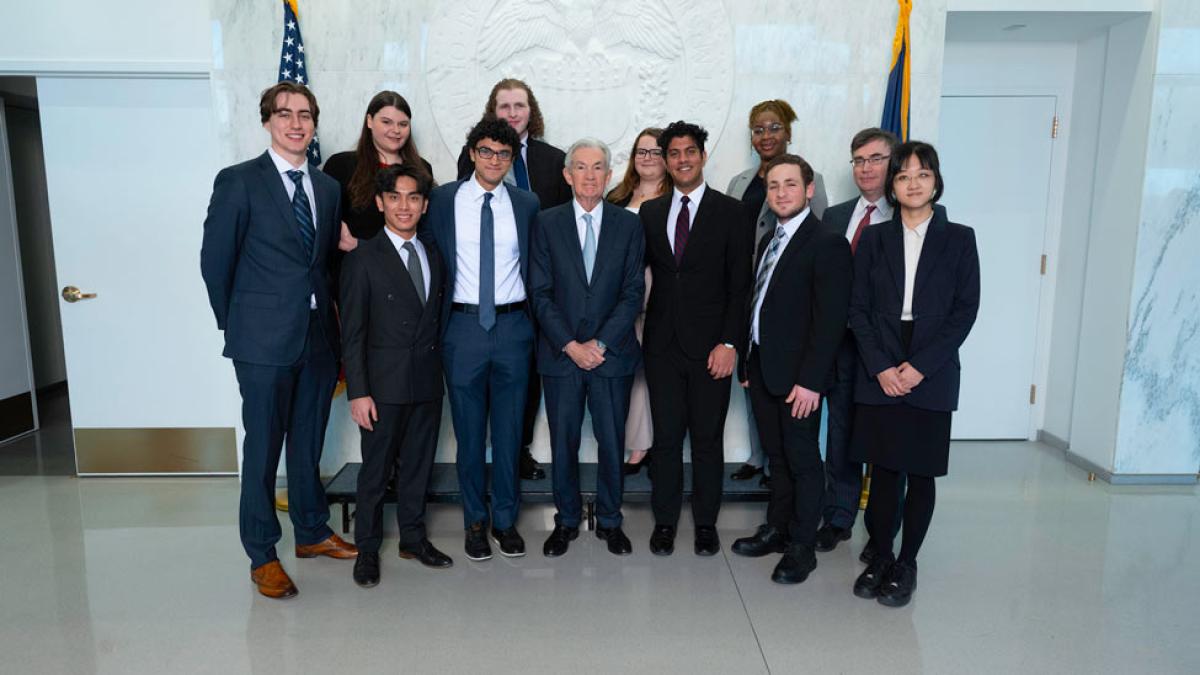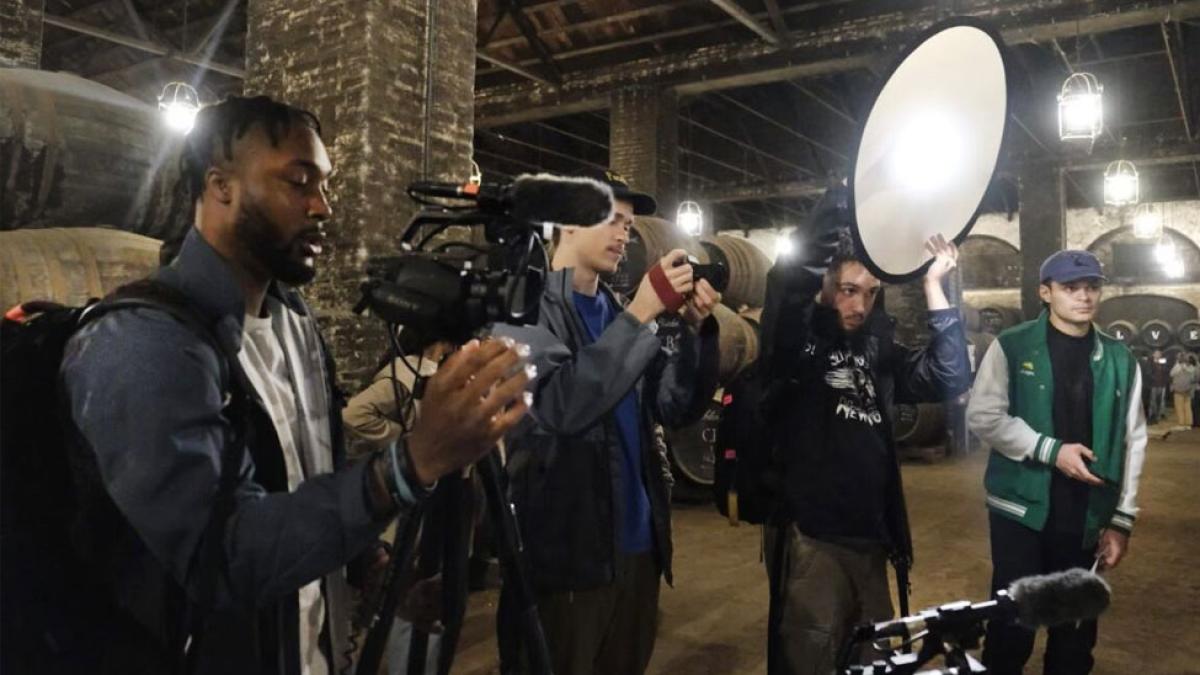Dyson economics student and Fed Challenge team co-captain Liam Chentoufi ’25, pictured alongside the team and Federal Reserve chair Jerome Powell, is harnessing the power of AI to help better predict Federal Reserve monetary policy decisions through an exploratory research study leveraging machine learning.
Building a Healthier Campus Community
Meet Olivia Burnett ’24, a health sciences major whose passion for public health and community wellness earned her the 2024 Pleasantville Campus Community Service Award. Read on to learn more about her experience combating food insecurity on campus.
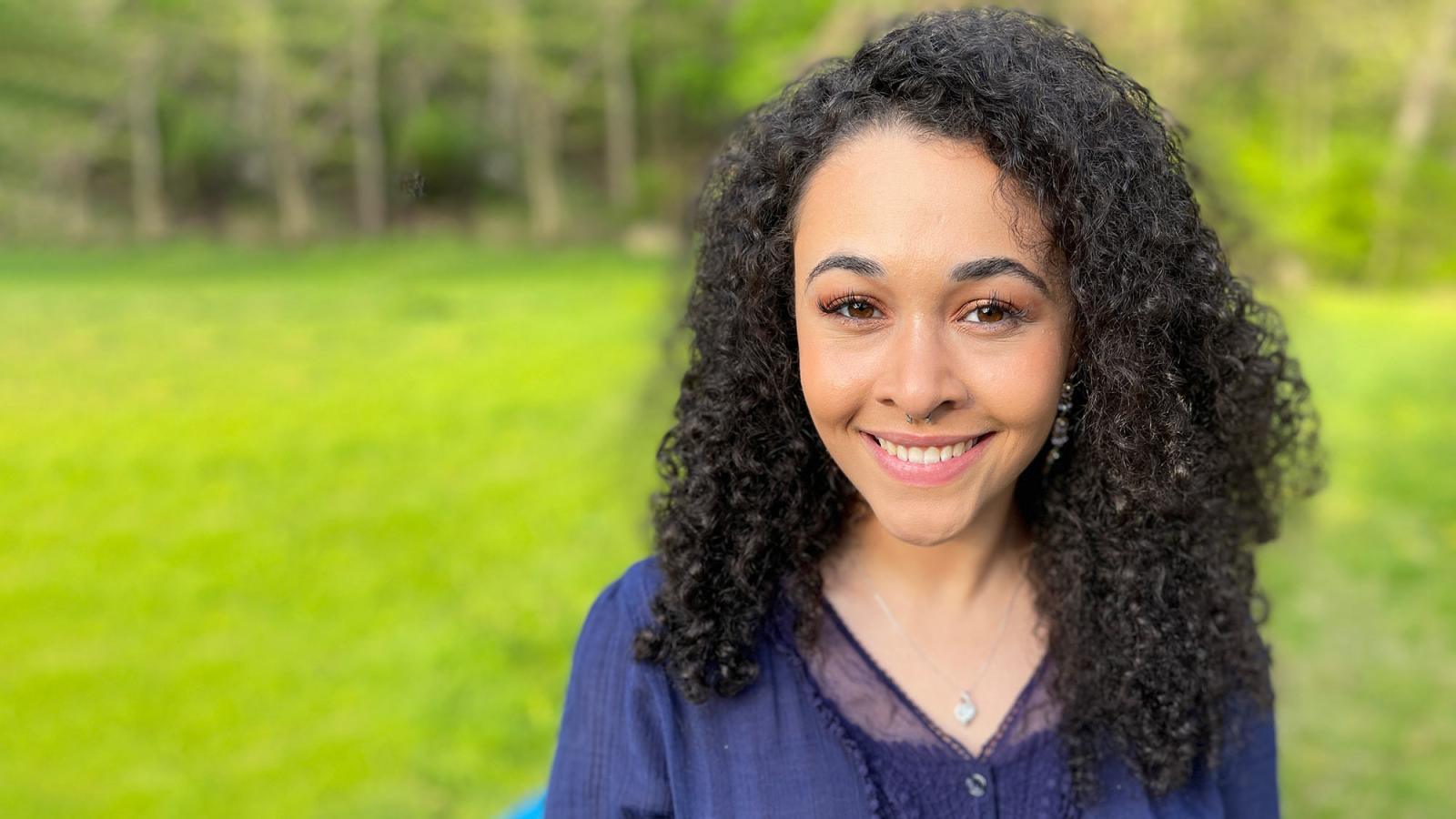
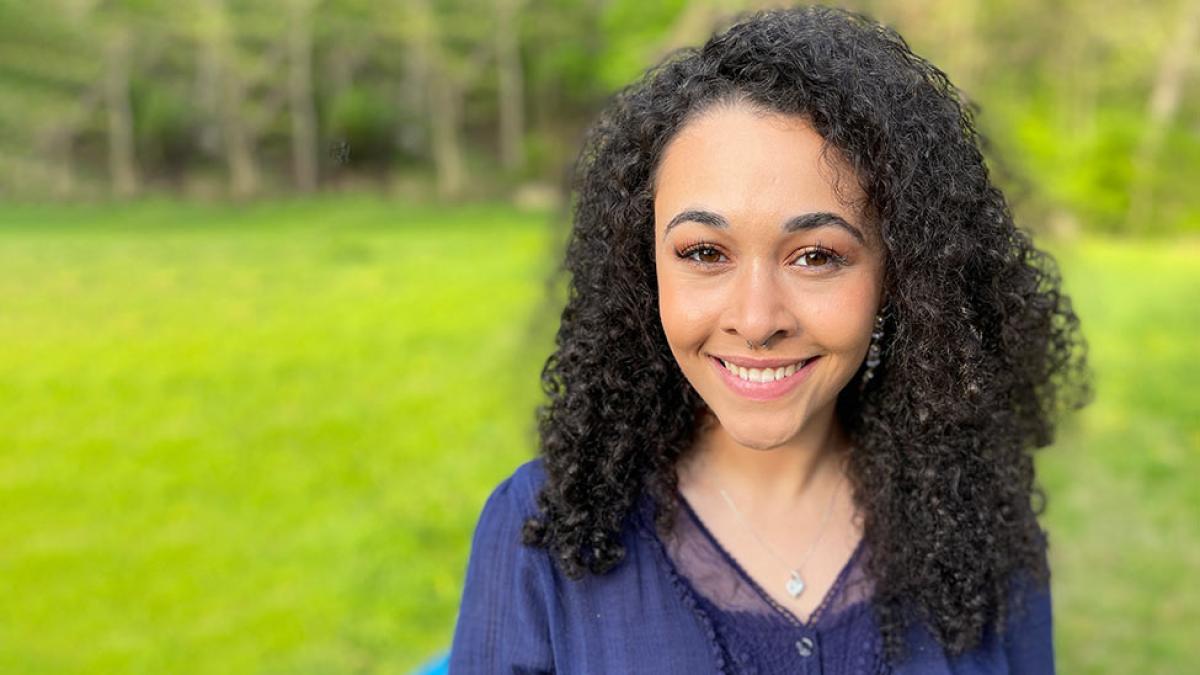
This month, Olivia Burnett ’24 will graduate from Pace University with a BS in Health Sciences, having specialized in the pre-Physician Assistant track with a concentration in Global Health. The program is known for its academic rigor, but that didn’t deter Olivia from pursuing her deep commitment to community service. Her leadership in initiatives like the Pace Market—along with her participation in clubs such as Pace Pride, Gamma Sigma Sigma National Service Sorority, and the NYS Public Health Association—has earned her the 2024 Pleasantville Campus Community Service Award.
Olivia's commitment to community service, especially in addressing food insecurity, stems from her experience growing up in an disadvantaged area of Upstate New York. According to Olivia, “I witnessed how families struggled to access, afford, and transport healthy and nutritious food.” However, it was the community's response to such need that truly inspired her passion for service. “At the same time, I saw how community members surrounded those people with love and support. I also observed the schools and churches in my area working to ensure that community members had everything they needed.”
“Acts of service help in creating healthy, safe, and successful communities.”
As she grew up, Olivia became one of these helpers, getting involved in community groups that addressed issues of food insecurity, loneliness in older communities, and cycles of violence. This service spirit continued once she came to Pace. “When I came to Pace, I realized that the issue of food insecurity was still prevalent,” said Olivia. “I felt compelled to do something about it from a public health standpoint.”
Denise Tahara, PhD, has witnessed Olivia’s passion for public health firsthand. “Olivia is committed to the health profession through her volunteer work and curiosity.” She watched as Olivia brought her vast experience to Pace, particularly the Pace Market, a food pantry open daily on the Pleasantville Campus.
Creating and sustaining campus programs and clubs that support different student groups is the key to creating happier, safer, and healthier communities for everyone.
Tahara noted that Olivia didn’t just show up, she stood out. “She has been working with the pantry to get the word out, particularly to BIPOC and LGBTQIA+ communities who underutilize the pantry.” Not only did Olivia work to expand access, she wanted to increase her understanding of food insecurity on campus. Tahara explains, “She administered a survey to learn more about student food insecurity and patterns of usage by the students.”
For Olivia, addressing food insecurity doesn’t just help those affected by it, but uplifts the entire community. “I believe that everyone should be willing to do acts of service that may not directly impact them but rather benefit the larger community they are a part of,” she says. “Acts of service help in creating healthy, safe, and successful communities.”
I believe that everyone should be willing to do acts of service that may not directly impact them.
After graduation, Olivia has decided to take a year to get firsthand experience in the field of public health as an EKG technician and continue her community work. After that, she plans to obtain a master’s degree in public health, bringing her closer to her goal of becoming a physician assistant. Tahara is confident in Olivia’s future, saying, “I believe that Olivia’s commitment to food security and advocating for underserved communities will make her a strong leader in the health professions.”
Her advice to current students remains focused on the power of community involvement: “Organizing on campus is important to ensure the community's success. Programs like the Pace Market work because volunteers take the time to get together and work towards a common goal,” says Olivia. “Creating and sustaining campus programs and clubs that support different student groups is the key to creating happier, safer, and healthier communities for everyone.”
May 2024: A Message from President Krislov
"As we approach the end of another academic year, I am once again honored to lead this institution. To students, parents, faculty, and staff—I thank all of you for your contributions to the Pace Community," writes President Krislov.
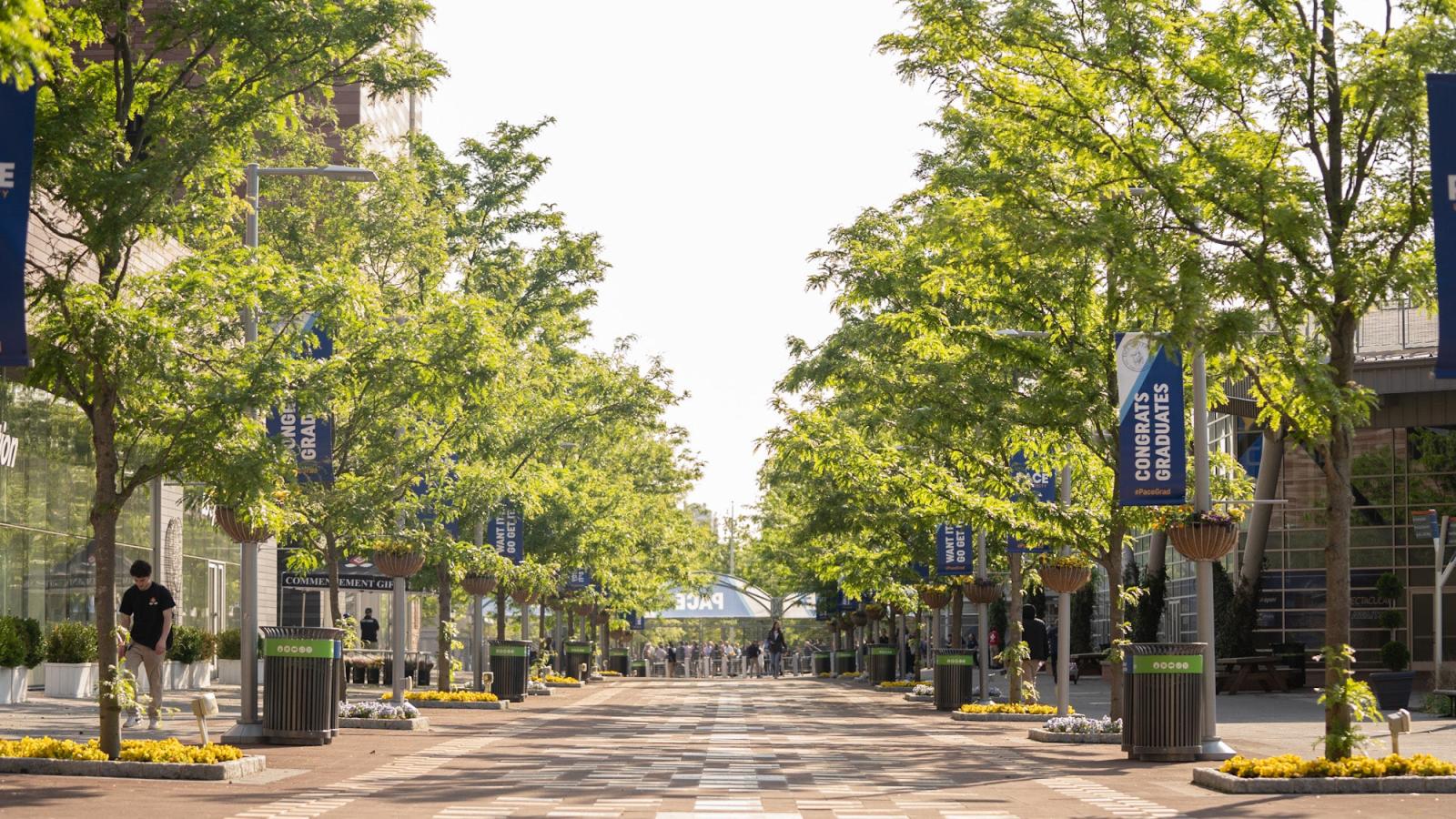
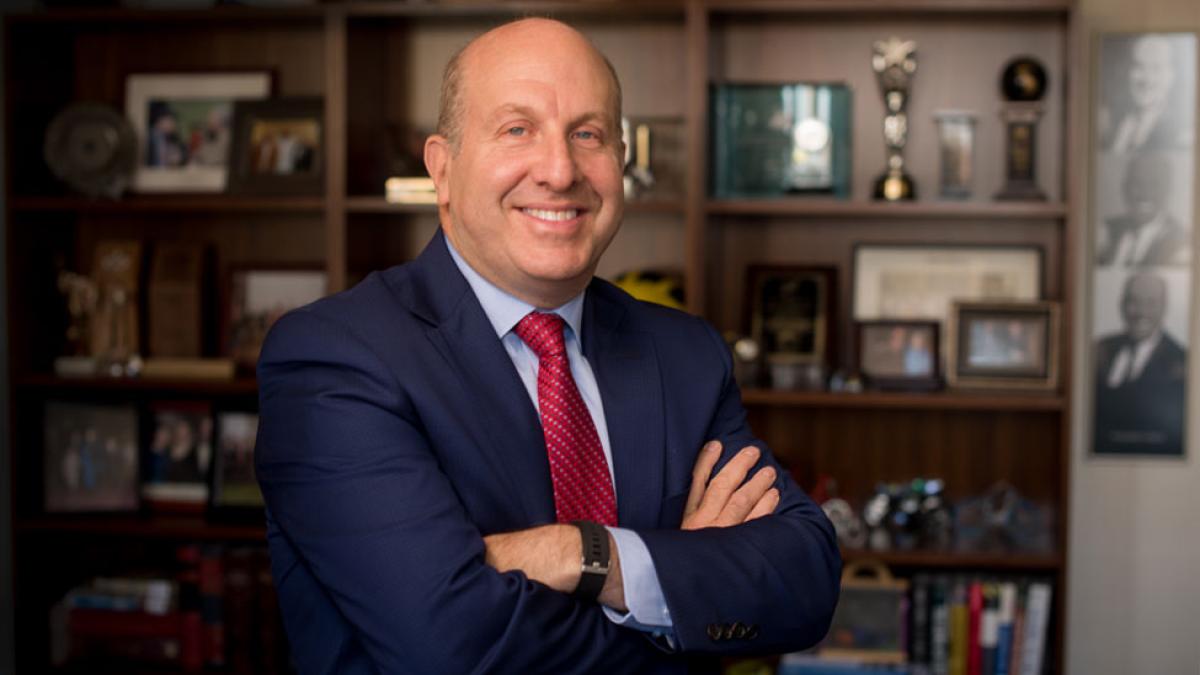
As we approach the end of another academic year, I am once again honored to lead this institution.
To students, parents, faculty, and staff—I thank all of you for your contributions to the Pace Community. You are all go-getters who embody Pace’s mission of Opportunitas.
To our graduating students with Commencement right around the corner, congratulations! Your dedication and hard work have gotten you this far and I am sure you will continue to make Pace proud as you rise in your future. We know that for many in this graduating class the pandemic took away your chance at a proper high school graduation in 2020—we are eager to celebrate your accomplishments!
This year has certainly been one filled with new challenges in higher education and I commend all of you for showing why Pace is so strong in the face of outside turbulence. We have built a foundation based on lifting each other up and always putting our best foot forward.
In this issue of PaceNow, we will be addressing some of the most pressing questions about Commencement 2024 ahead of the big day. Additionally, we will dive into the intersection of AI learning and Federal Reserve decisions, featuring insights from Professor Mary Kaltenberg and a student researcher.
Check out the behind-the-scenes look at the making of the new PaceDocs documentary, showcasing the dedication and talent of our students. From immersive research to on-the-ground experiences with coopers in Spain, the PaceDocs team has once again produced a superb picture for the world’s viewing pleasure. You can check out the trailer here.
We also highlight the achievements of four outstanding seniors—Alicia Bennett, Mikayla Meachem, Anthony Moretto, and Olivia Burnett—who have excelled academically while making significant contributions to their communities.
Be sure to check out our student, faculty, and staff events sections for information on upcoming activities and opportunities to engage with the Pace Community.
And, if you’re interested in continuing your education over the summer, Pace offers plenty of options for current students, visiting and non-degree students, and pre-college programs for those looking to get a leg up. Check out summer programs here.
I look forward to celebrating our graduating class with all of you and remain committed to supporting the success of all our students, faculty, and staff.
Always Striving for More
Anthony Moretto ’24 will graduate from Pace as the Pleasantville Campus 2024 Trustee Award Winner; an honor he earned by leveraging his academic talents into tangible impact for the Pace student community.

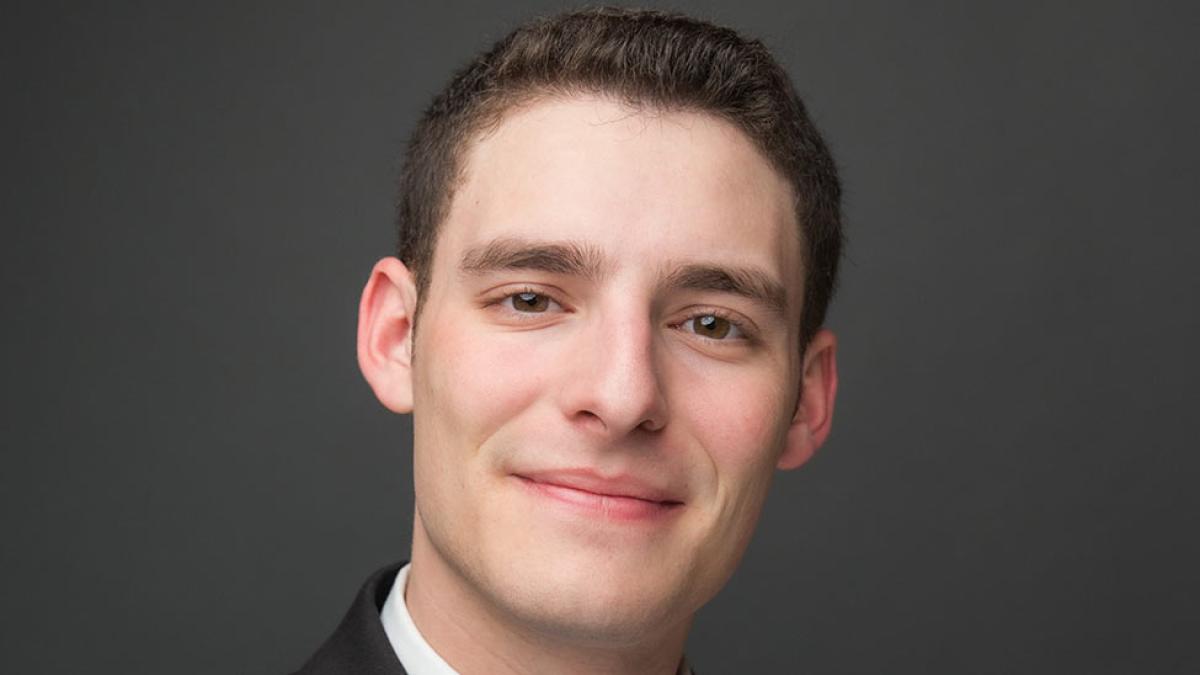
In a few short weeks, Pforzheimer Honors College student Anthony Moretto will graduate from Pace University with no shortage of accomplishments.
In the classroom, Anthony has been exemplary—he’s posted a near-perfect 3.96 cumulative GPA, earning a bachelor’s degree in finance at Lubin. Yet, it’s been his uncanny ability to combine his academic interests with becoming an on-campus leader in Pleasantville that has captured the attention of his peers and professors, enabling to earn the highly coveted 2024 Trustee Award.
“I attribute my drive to pure love of everything I do here,” says Anthony. “I have taken my e-board positions and jobs as a privilege. Being able to take classes in the university setting and learn on a higher level is also a great privilege.”
“I have taken my e-board positions and jobs as a privilege. Being able to take classes in the university setting and learn on a higher level is also a great privilege.”
One of the roles he’s most known for is the General Manager of Pace Perk Mart, the ever-popular convenience store at the heart of the Pleasantville Campus. Having initially served as the assistant finance manager tasked with cash and dining dollar accounting, Anthony worked his way up to the GM position, through which he has led a group of roughly a dozen student employees in all facets of business, from day-to-day operations to building a great company culture. Pace Perk is part of Pace’s Center of Student Enterprise, through which students can gain crucial experience managing student-operated businesses. By partaking in this unique experiential learning opportunity, Moretto will be graduating one-step ahead of the competition, all while admirably serving the Pace Community.
He’s also been an instrumental to the increasing popularity of the Pace Pleasantville Investment Club; over the course of his time at Pace, Anthony has helped grow the club and strengthen its operations by instituting budgetary and management systems that have helped it become a major presence on campus. As President, he created numerous investment presentations, coordinated with major financial institutions such as JPMorgan and Barclays to organize events, and much more. He also served as the treasure of the Pace University Programming Board, managing a budget of $55,000 per semester.
“There are a few events and achievements that I am very proud of here,” recalls Anthony. “Helping to successfully plan the Springfest carnival two years in a row is definitely up there. I had an event where I had Barclays come speak to investment club with around 40 attendees, which was one of my proudest events. Turning great profits at Pace Mart and nurturing a large team as general manager is also a great point of pride.”
While Anthony’s individual accomplishments are impressive, he credits his strong support system—both from his family as well as his friends and colleagues at Pace—as crucial in helping him develop the work ethic that has enabled him to thrive as a Setter.
“I believe a lot of my drive comes from the way I was raised. My father’s motto is ‘I did it yesterday’ and I try to match that enthusiasm and work ethic. The love and support I have been given by family and friends also pushes me to strive for greatness. My grandparents didn’t uproot from Italy and come to America for me to shoot for mediocrity.”
Anthony is excited to continue to push boundaries in the future, as he pursues a career in the financial word; he’s currently weighing where exactly in the investment field he’d like to most make an impact, which will dictate his next steps in terms of certifications and licensing. Having recently presented his Honors Thesis that centered around using CRSP returns data and Bloomberg ESG data for the companies of the S&P 500 to determine the relationship between ESG disclosures and returns, he’s set himself up well to dive into some of the industry’s most pertinent and future-forward issues.
While Anthony will be moving on to professional pursuits instead of returning to Pace this coming fall, his influence will remain strong on the Pleasantville Campus as he passes the baton to the next generation of Setters ready to make an impact.
“Loving what I do here and how it positively impacts the people around me gave me the drive to do the things I did,” concludes Anthony. “My advice for new students is to get involved, but not to over-extend yourselves. Get the most out of your college experience, make friends, go to events, and strive for greatness.”
More from Pace
Seidenberg grad student Shubham Harishchandra Madhavi is making waves in the fight against climate change. His recent victory in the Project Planet USA contest, securing a $15,000 grant, has propelled his innovative concept into the spotlight.
From immersive research to on-the-ground experiences with coopers in Spain, the PaceDocs team is once again crafting a captivating narrative. With dedicated translation efforts, meticulous scriptwriting, and seamless editing, the team navigates challenges to produce a stellar final product which will premiere on May 2.
Pace | Haub Law Advocacy Program Celebrates its Successes at the Third Biennial Gavel Gala
The Pace | Haub Law Advocacy Program hosted its third biennial Gavel Gala on Thursday, April 11, 2024 at the Glen Island Harbour Club in New Rochelle, NY. The mission of the Gavel Gala is to honor the advocacy program’s hardworking and dedicated coaches, the successes of former law school alumni, to celebrate the school’s current law students in the advocacy program, provide students the opportunity to network with attorneys and judges, to provide scholarship money to allow our students the opportunity to travel and compete across the nation and in prestigious international opportunities. This year, the Program had a lot to celebrate as it was recently ranked # 13 in the Nation by U.S. News and World Report’s latest rankings.
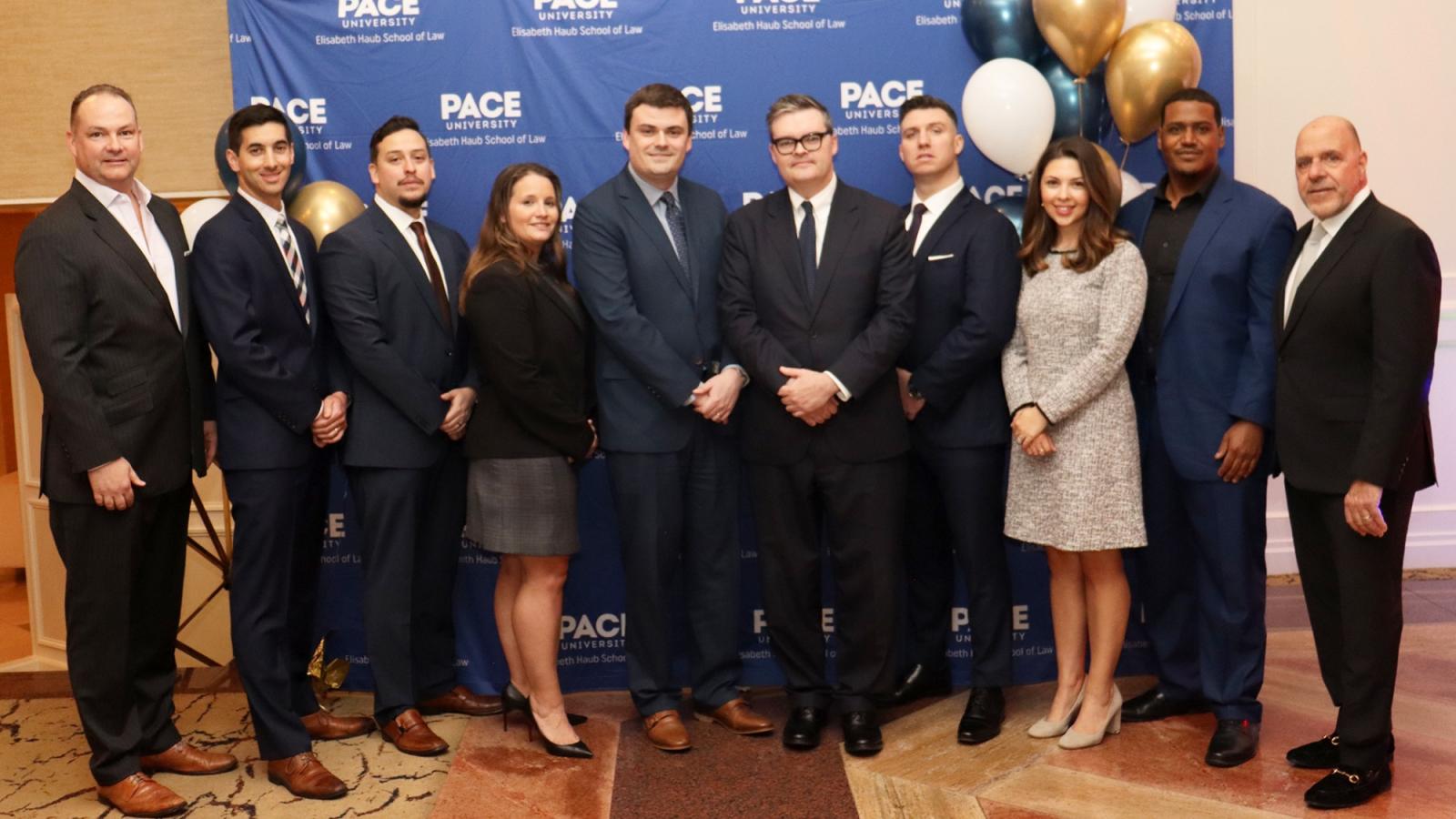
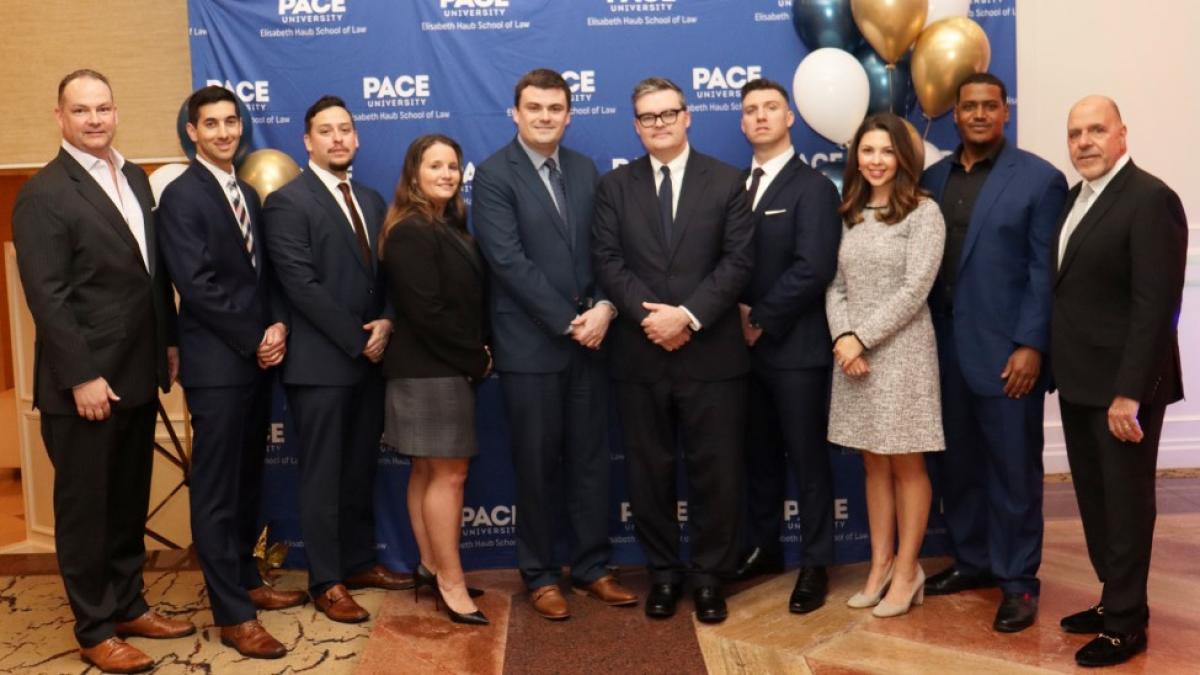
The Pace | Haub Law Advocacy Program hosted its third biennial Gavel Gala on Thursday, April 11, 2024 at the Glen Island Harbour Club in New Rochelle, NY. The mission of the Gavel Gala is to honor the advocacy program’s hardworking and dedicated coaches, the successes of former law school alumni, to celebrate the school’s current law students in the advocacy program, provide students the opportunity to network with attorneys and judges, to provide scholarship money to allow our students the opportunity to travel and compete across the nation and in prestigious international opportunities. This year, the Program had a lot to celebrate as it was recently ranked # 13 in the Nation by U.S. News and World Report’s latest rankings.
Over 240 attendees spent the evening networking, dancing, and celebrating the program’s successful past, present, and future. The evening included an awards ceremony that recognized the Advocacy Program’s dedicated alumni, students, and volunteers. “The importance of bringing our community together in celebrating our collective effort of mentoring the best future advocates is essential to maintaining the tremendous excitement and success of our students and recent alumni,” said Director of Haub Law’s Advocacy Programs and Professor of Practice in Advocacy, Louis Fasulo. “We are making a great impact on the legal community, and this is just another opportunity to showcase the excellence our Program has achieved.”
This year reflected the greatest number of winning teams, semifinalists, and quarterfinalists in the Program’s history. “This is a reflection of not only the awardees tonight, but of all our student competitors and coaches,” said Professor Fasulo. “We had an amazing year, and I am so proud of everyone’s effort and eager to see where we take this Program next.”
The Gavel Gala had several generous 2024 dinner sponsors, including the firms of Sullivan & Galleshaw, Fasulo Giordano & DiMaggio LLP, the Law Offices of Patrick Joyce, Miller Zeiderman LLP, Lexplug, and an anonymous supporter of our BLSA teams and coaches. The Gala also had support by donations made by many alumni as well as raffle donations from many local businesses throughout Westchester County. The Gavel Gala would not have been possible without the efforts of Sabrina Rehfeld, Isabella Eitner, and Antony Galvano who worked endless hours to make it a perfect evening for all. Additionally, the Program would like to thank the Public Relations and Event team, Advocacy Program Event Coordinator, Loretta Musial, Assistant Dean for External Affairs, Rachael Silva, and our Dean of Students, Angie D’Agostino for all their assistance.
2024 Gavel Gala Awards
2024 Loretta Musial Service Award
- Eva Ferrari of E.V.A Travel
2024 Alex Gastman Coach’s Award
- Brad Gorson ’13
- Samantha Tighe ’20
2024 Public Sector Rising Stars
- Natale Corsi ‘19
- Griffin Kenyon ‘15
- Jordan Montoya ‘17
- The Honorable Taylor Piscionere ‘13
- Christopher Smith ‘17
2024 Private Sector Rising Stars
- Ashley Kersting ‘16
- Giuliana Trivella-Muller ‘17
- Nicole Murdocca ‘14
- Christopher Peticca ‘18
2024 Student Awards
Keith Sullivan Outstanding Advocacy Award
- Chloe Devanny
- Liam Rattigan
- Stephanie Areford
- Amanda Dinkin
- Arianna Cruickshank
- Joseph Demonte
Michelle Simon Leadership Award
- Chloe Devanny
- Sarah Kissel
- Antony Galvano
Unsung Hero Award
- Kimberly Abrahall
- Andrea Garcia
Advocate of the Year Award
- Joseph Demonte
Elisabeth Haub School of Law Professor Jason Czarnezki and Alumnus Basil Seggos Rank Among the 2023 Energy & Environment Power 100
Professor Jason J. Czarnezki, Gilbert and Sarah Kerlin Distinguished Professor of Environmental Law and Associate Dean of Environmental Law Programs and Strategic Initiatives at the Elisabeth Haub School of Law at Pace University, was named to the “2023 Energy & Environment Power 100” list published by City & State New York magazine.
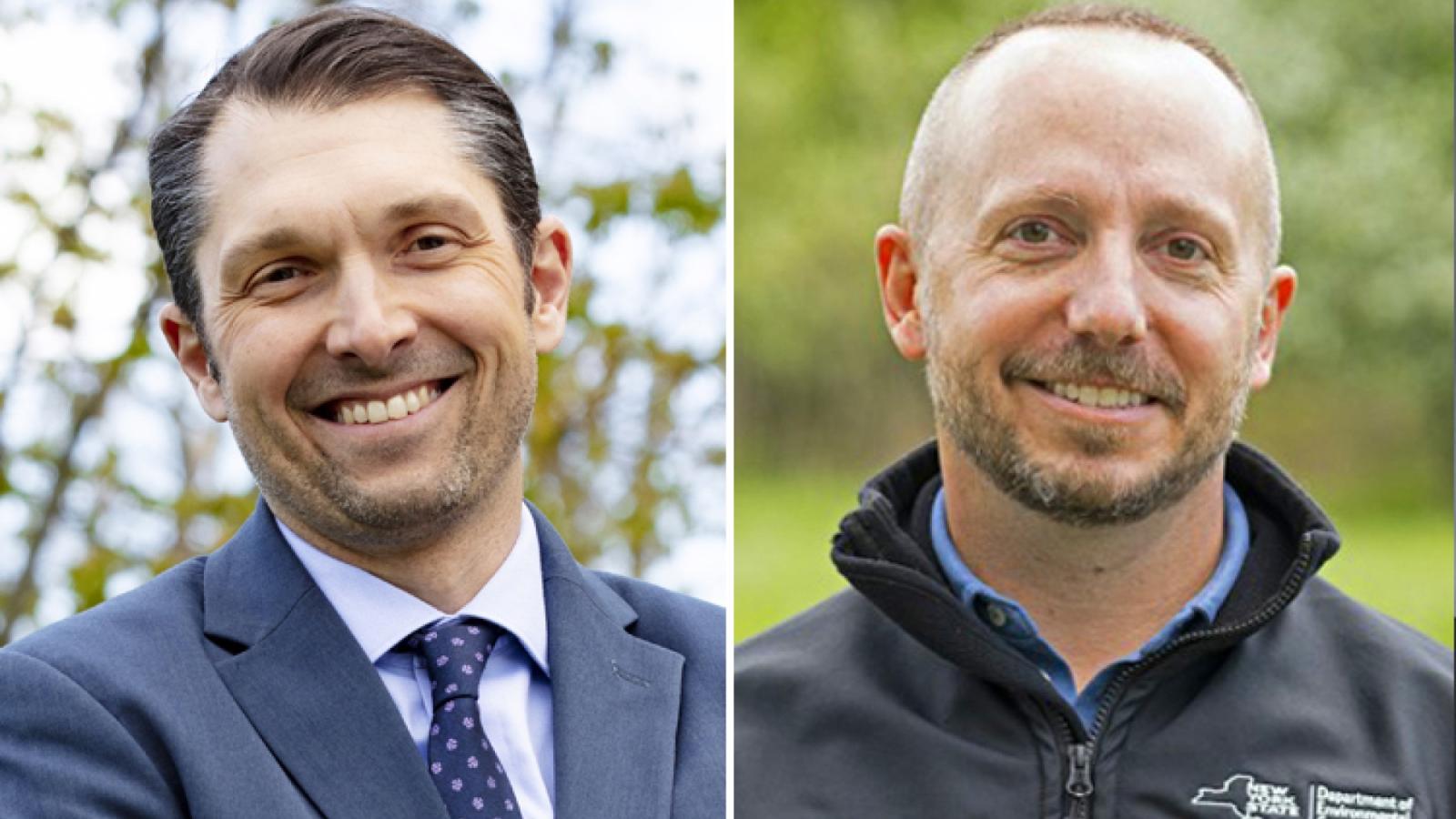
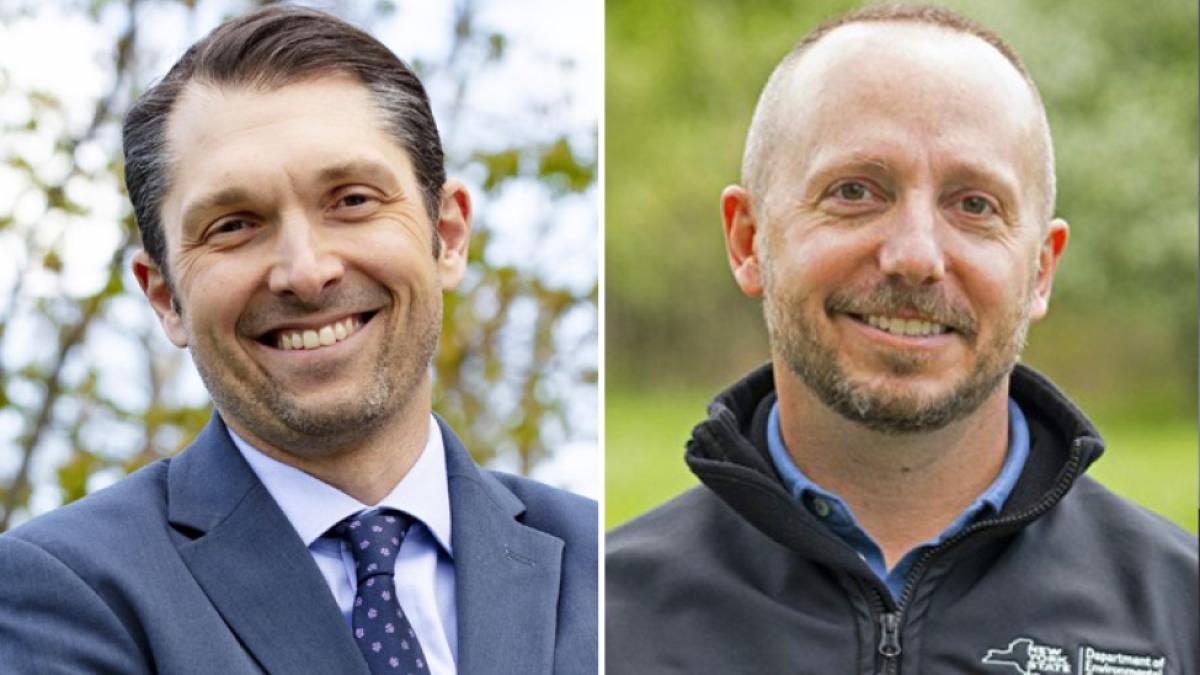
Professor Jason J. Czarnezki, Gilbert and Sarah Kerlin Distinguished Professor of Environmental Law and Associate Dean of Environmental Law Programs and Strategic Initiatives at the Elisabeth Haub School of Law at Pace University, was named to the “2023 Energy & Environment Power 100” list published by City & State New York magazine. Professor Czarnezki was ranked #85 on this year’s list, noting the impact that he has had since joining Haub Law and the environmentally forward initiatives he has helped launch in that time, including most recently, the Sustainable Business Law Hub. This year’s prestigious Power 100 list includes public officials, energy executives, environmentalists, activists, academics and others who are “the key players shaping New York’s energy future.”
Distinguished Haub Law alumnus Basil Seggos ’01, Commissioner, State Department of Environmental Conservation, received the #3 ranking, in part for his leadership in New York State’s ambitious climate agenda to cut carbon emissions 40% by 2030. Additionally, former Haub Law Visiting Scholar Judith Enck, Founder and President of Beyond Plastics and former EPA Region 2 Administrator, ranked #36, along with Fred Zalcman at #25, who served as Pace Energy & Climate Center’s Executive Director from 2001 – 2007.
“I am honored to be recognized among the top energy and environmental leaders in New York, all of whom are making positive strides each day towards combating climate change,” said Czarnezki. “Haub Law is home to the top ranked environmental law program in the country. Our innovative programs are continuously geared towards creating a sustainable and climate friendly future, and I am proud to lead these initiatives.”
85. Jason J. Czarnezki
Associate Dean and Executive Director, Environmental Law Programs, Elisabeth Haub School of Law at Pace University
In the 10 years that Jason Czarnezki has taught at Pace University’s environmental law program, the department has been among the top-rated programs in the country according to the U.S. News & World Report. Czarnezki helped the farmers market operator GrowNYC formalize its relationship with the school’s food and beverage law clinic in 2021. The following year, he became the faculty director for Pace’s sustainable business law hub, which is devoted to addressing sustainability challenges through research and public policy.
3. Basil Seggos
Commissioner, State Department of Environmental Conservation
One of the few Cuomo-era commissioners to stay on in Gov. Kathy Hochul’s administration, Basil Seggos is part of the team steering the state’s ambitious climate agenda to cut carbon emissions 40% by 2030. Under Seggos’s leadership, the state Department of Environmental Conservation launched an air pollution monitoring system and encouraged drought-affected counties to conserve water. Seggos, who took a leave to assist with the Ukraine humanitarian effort last fall, was instrumental in ensuring the state barred permits for cryptocurrency mining. Now, he’s monitoring air and water quality in Western New York after a train derailment in Ohio contaminated the surrounding area.
View the full City & State 2023 Energy & Environment Power 100 list
A Talk with Colby Hopkins
As program coordinator of the BA in Writing for Diversity and Equity in Theater and Media (W4DETM), Colby Hopkins creates and facilitates social justice and diversity, equity, and inclusion (DEI) programming for students; cultivates partnerships within and outside of Pace; writes grant proposals, reports, and program assessments; and much more.
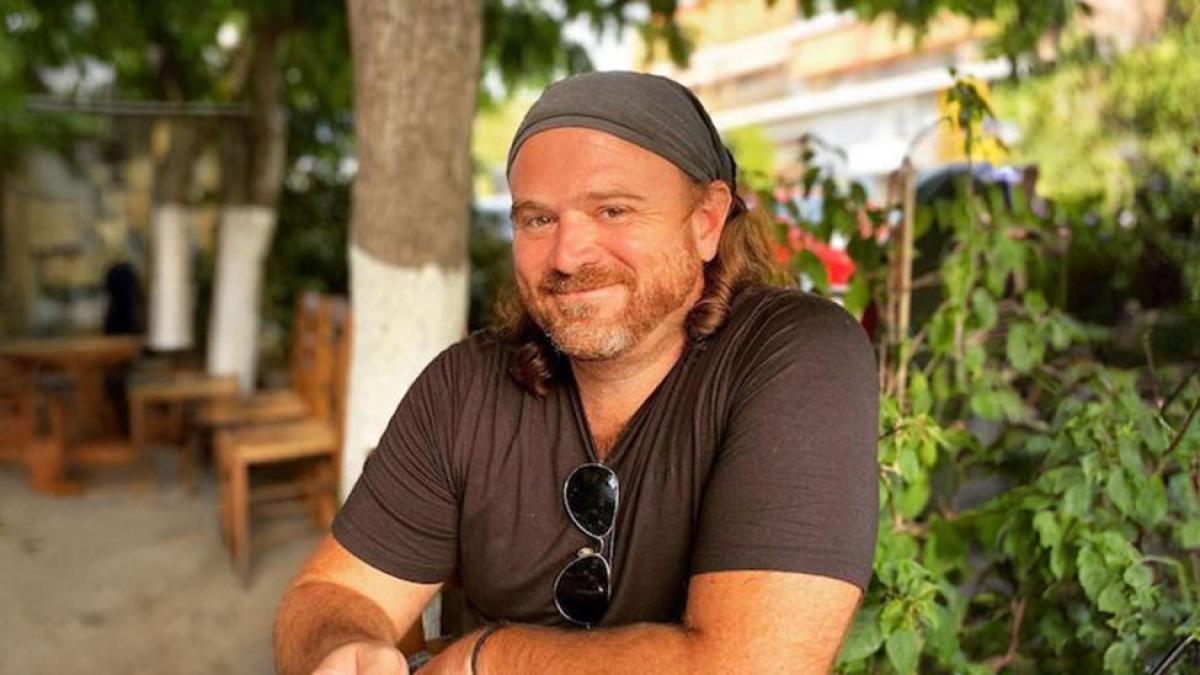
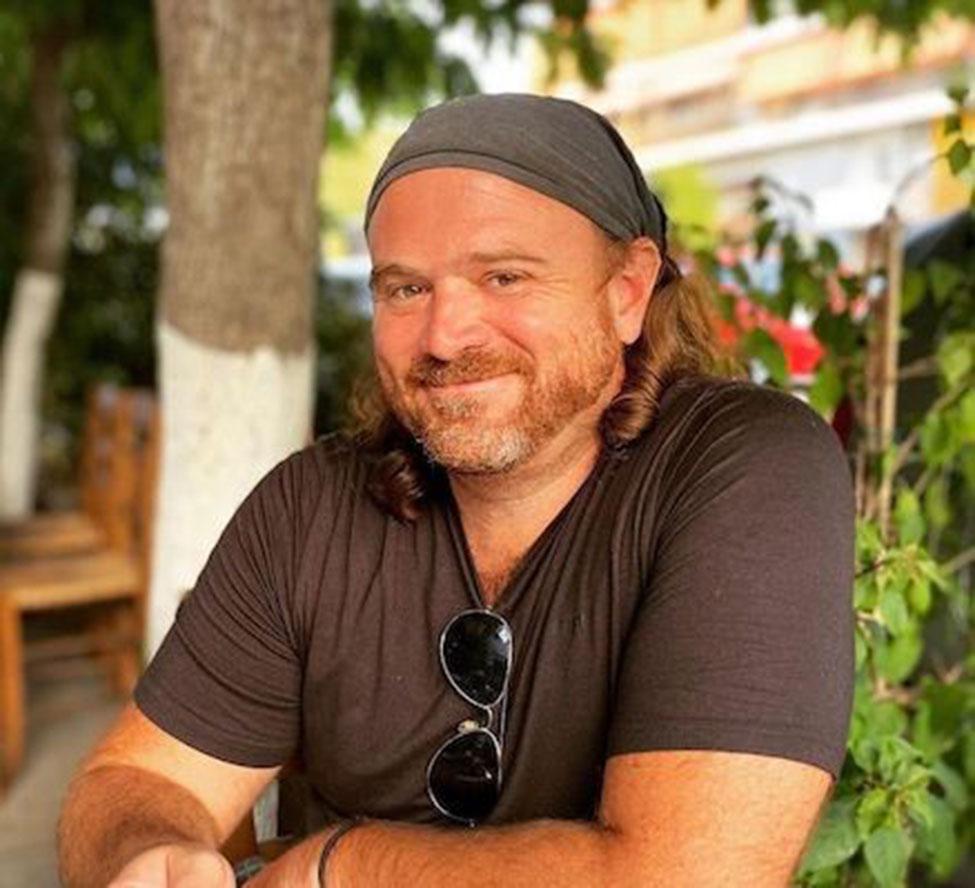
Colby Hopkins
As program coordinator of the BA in Writing for Diversity and Equity in Theater and Media (W4DETM), Colby Hopkins creates and facilitates social justice and diversity, equity, and inclusion (DEI) programming for students; cultivates partnerships within and outside of Pace; writes grant proposals, reports, and program assessments; and much more.
What do you find most meaningful about your work?
The most meaningful aspect of my work is the opportunity to create a supportive and inclusive environment through which students can thrive as their authentic selves, and as writers and social justice advocates who believe in the power of their words. I find immense fulfillment in creating and facilitating programming that not only educates, but also inspires our brilliant, talented, and thoughtful students to explore and address issues of equity and inclusion through their writing, storytelling, and creative projects. I am deeply committed to supporting students to stand in their own authentic voices and be successful, while contributing to a more just and equitable society.
In the W4DETM program, students learn to develop creative content for film, TV, theater, and media, with a focus on promoting DEI and elevating underrepresented voices in the process. What does DEI mean to you and why is dismantling false narratives and telling stories with truth and authenticity important?
To me, DEI often is, but should never be, performative. My concerns about DEI initiatives have always been the hyper focus on diversity and conformity; that is, working with people from different genders and backgrounds who will just continue institutional norms rather than transform them. DEI cannot just about diversity; it’s also about equity and inclusion, which means recognizing and valuing the unique perspectives, experiences, and identities of all individuals, regardless of race, ethnicity, gender, sexual orientation, ability, beliefs, body, neurodivergence, physical abilities, age or background. This is distinct from social justice but a necessary component of it.
Stories build knowledge and evoke emotion and, therefore, stories move people. In an era marked by polarization and misinformation, authentic storytelling serves as a powerful antidote, fostering empathy, understanding, and connection across diverse communities, while functioning as a challenge to embedded power structures. By elevating underrepresented voices, we not only honor the richness of human experience, but also confront systemic inequalities and injustices. Further, authentic storytelling enables us to confront uncomfortable truths, reckon with historical injustices, envision, and work toward a more inclusive and equitable future.
What is an example of recent, engaging W4DETM programming?
I recently designed, coordinated, and facilitated an immersive learning experience focused on community organizing and social movement work, through which students and Assistant Dean for Diversity and Equity in the Arts S. Brian Jones, engaged in activities such as role-playing exercises and practicing one-on-one meetings. These interactive components allowed students to explore theoretical concepts of social justice and community organizing work and engage practical skills while fostering deep conversations. Their active participation and positive feedback affirmed the value of this programming in fostering meaningful perspectives on social justice that informs creative content development. The skills also apply to their industry, and meetings with theater industry professionals, which some of our students participate in, are part of their career development.
In addition, Dean Jones and I collaborated with the student cohort to design a thought-provoking discussion program centered on neurodivergence and accessibility in the arts. We were fortunate to host a director and writer from the groundbreaking Broadway show, How to Dance in Ohio, who enriched the dialogue with their insights and experiences. The discussion organically unfolded, and we delved into the challenges and opportunities for inclusion and representation. This was in addition to topics relating to career paths, challenges, and burn out in the theater industry.
In your observations, what do W4DETM students, who seem to be truly engaged in and excited to be a part of the program, bring to it, and what is it about them that you are most proud of?
The W4DETM students build the program with us because our work is centering their voices. They also bring to their work, community, and the program a palpable sense of passion, creativity, talent, authenticity, and grace that is truly inspiring. What I'm most proud of is the students' grace towards each other as an essential part of our community-building and compassion toward the world which motivates them to create and inspire change. They come from diverse backgrounds and bring with them a wide range of perspectives and experiences, enriching each other and our cohort as a whole. They are dedicated to using their voices and talents to advocate for social justice and equity within the arts. And they demonstrate a deep understanding of the power of storytelling as a tool for change and are eager to explore how they can make a meaningful impact through their creative work. There’s so much to be proud of our students for—they’re exceptional people.
The W4DETM program’s cohort is small, allowing students to collaborate and form connections that continue beyond the classroom. Can you speak of the importance of this unique feature?
In my opinion, community-building with the cohort is the most important aspect of our work; it’s the foundation. I can attest to the immense importance of the small cohort size in the W4DETM program, as this unique feature fosters a close-knit community and intimate learning environment through which students help and support each other’s productions and career paths and feel supported, valued, and empowered to take creative risks and explore new ideas. It promotes collaboration over competition. When a student tells me how much our support means to them, or when I witness them supporting each other, I feel the value of our work.
You have an extensive background in social justice and political activism, having coordinated many peaceful demonstrations and civil disobedience actions, as well as authoring two books. What are your thoughts on the importance of civic engagement, a key part of the Pace Path?
I firmly believe in the importance of civic engagement and solidarity as cornerstones of a healthy democracy, as they empower individuals to participate actively and collectively in the decision-making processes that shape their lives, communities, and societies, ensuring that diverse voices are heard and represented. I believe, for major change to be possible, people must recognize the common sources of their struggles and commit to solidarity across them. The Pace Path's emphasis on civic engagement as well as the service and social justice components of the W4DETM program, encourage students to become informed and active citizens equipped to address complex societal challenges. By engaging in community service, advocacy, and political activism, they contribute to positive social change, as well as develop critical thinking skills, empathy, and a sense of responsibility towards others. The students have repeatedly affirmed that these programs develop their understanding of social justice work and help their creative content development.
The W4DETM program is made possible through a partnership between Pace and the Edmond de Rothschild Family Philanthropy. In your opinion, why is funding for the arts important?
Arts, especially those that meaningfully challenge the status quo, are not usually valued in a purely capitalist model, so support from philanthropic institutions can play an essential role in providing resources for unique and necessary educational initiatives. Without the support of the Edmond de Rothschild Family Philanthropy, we wouldn’t be able to create this space and environment for our students to thrive—a space that helps empower them to pursue their passions, find their voices, and realize their artistic potential with a specific aim towards creating social change. Furthermore, the arts have the power to inspire, provoke thought, foster empathy, and move people, serving as a catalyst for social change and collective action. The students in the W4DETM major are realizations of this potential.
What are your thoughts on the liberal arts serving as a catalyst for change in society?
The liberal arts serve as a powerful catalyst for change in society by fostering critical thinking, empathy, and a deeper understanding of human experience. Liberal arts take a holistic approach which emphasizes the importance of dialogue, debate, and critical inquiry, creating spaces for intellectual exploration, which we foster in the W4DETM program. This commitment to open inquiry and discourse fosters a culture of innovation and creativity, where students learn from each other and develop their own voices as a path to envisioning and creating a better, more equitable world. Additionally, the liberal arts promote empathy and understanding by exposing students to diverse people, cultures, histories, and perspectives. In our work, this is critical for students to develop their own voices and write deeper, more meaningful stories.
What are you working on currently and what’s next for you and the program?
Currently, I’m working with Dean Joneson developing the scholarship application for our upcoming scholarship program, we’re planning a couple of trips to see Broadway and off Broadway shows, exploring partnerships for service programs over the summer, developing our discussion event with How to Dance in Ohio guests into a workshop for Pace’s Social Justice Week in the fall, and getting ready for our first senior’s capstone project, a professional produced reading of their full length script, and graduation!
Elisabeth Haub School of Law at Pace University Announces New York State Chief Judge Rowan D. Wilson as 2024 Commencement Speaker
The Elisabeth Haub School of Law at Pace University is pleased to announce that the Honorable Rowan D. Wilson, Chief Judge of the New York State Court of Appeals, will deliver the Law School’s commencement address at its 46th Commencement Ceremony, to be held on May 20, 2024, at the USTA Billie Jean King National Tennis Center in Queens.
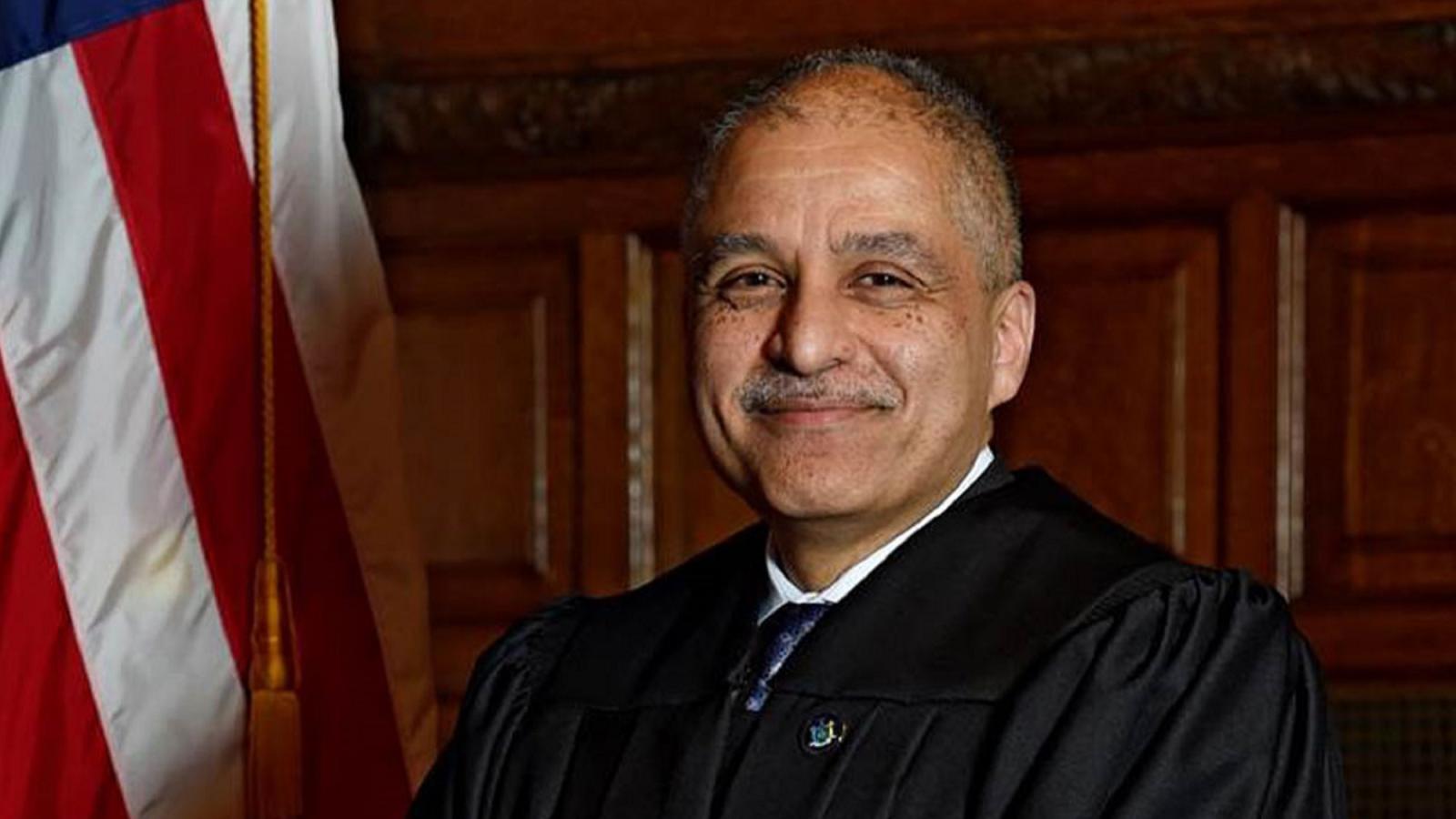
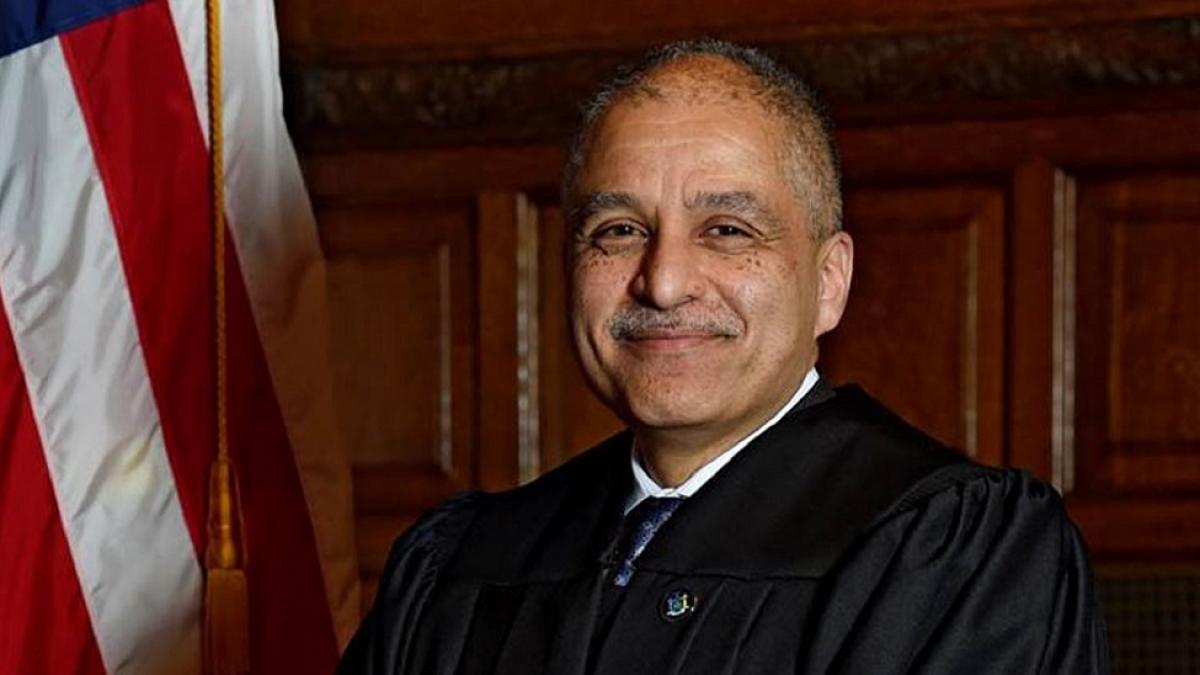
The Elisabeth Haub School of Law at Pace University is pleased to announce that the Honorable Rowan D. Wilson, Chief Judge of the New York State Court of Appeals, will deliver the Law School’s commencement address at its 46th Commencement Ceremony, to be held on May 20, 2024, at the USTA Billie Jean King National Tennis Center in Queens.
Judge Wilson will also receive the Doctor of Laws, honoris causa, the highest honor conferred by the Law School, recognizing his lifelong contributions to public service and the legal profession.
“Judge Wilson has had a distinguished career as a lawyer and a jurist, and in his current role as New York’s highest-ranking judge, is one of the nation’s leading voices advancing equity, justice, and the rule of law,” said Horace E. Anderson Jr., Dean of the Elisabeth Haub School of Law. “He is a trailblazer who has made significant individual contributions to the legal profession during his exemplary career. His example highlights the diverse paths and opportunities that are available to those who choose to use their legal education to pursue their passions and make an impact on society. We couldn’t be more pleased that Judge Wilson will join us as the Law School’s 2024 Commencement Speaker, imparting his advice to our students as they take the next step in their legal careers.”
Governor Andrew M. Cuomo nominated Judge Wilson to serve as an Associate Judge of the Court of Appeals on January 15, 2017, and the New York State Senate confirmed his nomination on February 6, 2017. On April 10, 2023, Governor Kathy Hochul nominated Judge Wilson to serve as Chief Judge of the Court of Appeals and the State of New York. The New York State Senate confirmed his nomination on April 18, 2023.
Judge Wilson is the first person of color to lead the Court of Appeals, the highest court in New York State, located in Albany. As Chief Judge of the State of New York, he is responsible for the administration of the entire New York’s Unified Court System, which has 16,000 employees, a $3 billion budget, and administers justice to a population of nearly 20 million residents.
Judge Wilson was born in Pomona, California, in 1960, and grew up in Berkeley, California. He received his A.B. degree from Harvard College in 1981, and his J.D. degree from Harvard Law School in 1984. He was admitted to the bar of the State of California in 1985, and the bar of the State of New York in 1987. From 1984 to 1986, he served as a law clerk to the Honorable James R. Browning, Chief Judge of the U.S. Court of Appeals for the Ninth Circuit, based in San Francisco.
In 1986, Judge Wilson joined the firm of Cravath, Swaine & Moore in New York City as an associate, and was elected to partnership there in 1991, in which position he continued until February 2017. While there, he handled a wide variety of matters, including antitrust, intellectual property, securities and common-law fraud, contract, labor and employment, civil rights and first amendment issues, and he rose to become the firm’s first partner of color.
Demonstrating a commitment to the community, Judge Wilson has served on the boards of several charitable and not-for-profit organizations including the Lawyers Committee for Civil Rights Under Law, the National Center for Law and Economic Justice, and the Neighborhood Defender Service of Harlem.
The 2024 Commencement Ceremony for Elisabeth Haub School of Law at Pace University will be live-streamed at 9:45 a.m. EST on Monday, May 20, 2024, from Louis Armstrong Stadium, USTA Billie Jean King National Tennis Center in Flushing, NY. For more information, visit the Commencement website.
Environmental Justice and Human Rights Scholar Professor Rebecca Bratspies Delivers Annual Lloyd K. Garrison Lecture on Environmental Law
Professor Rebecca Bratspies delivered the Annual Lloyd K. Garrison Lecture on Environmental Law on Tuesday, April 16 on "Mapping Injustice: Race, Place, and Environment in New York City." The Lloyd K. Garrison Lecture on Environmental Law was established in memory of Lloyd K. Garrison in 1995.
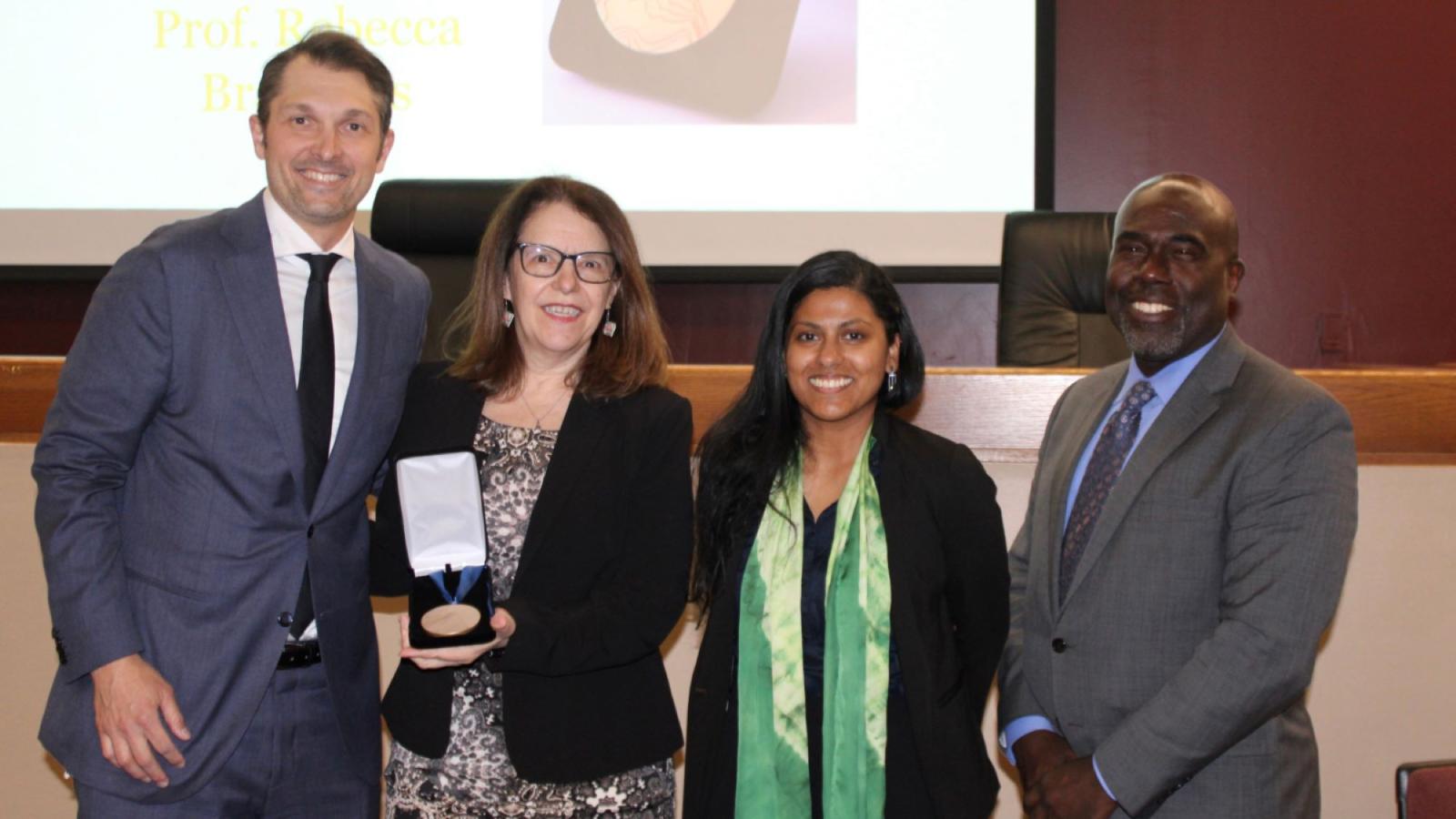
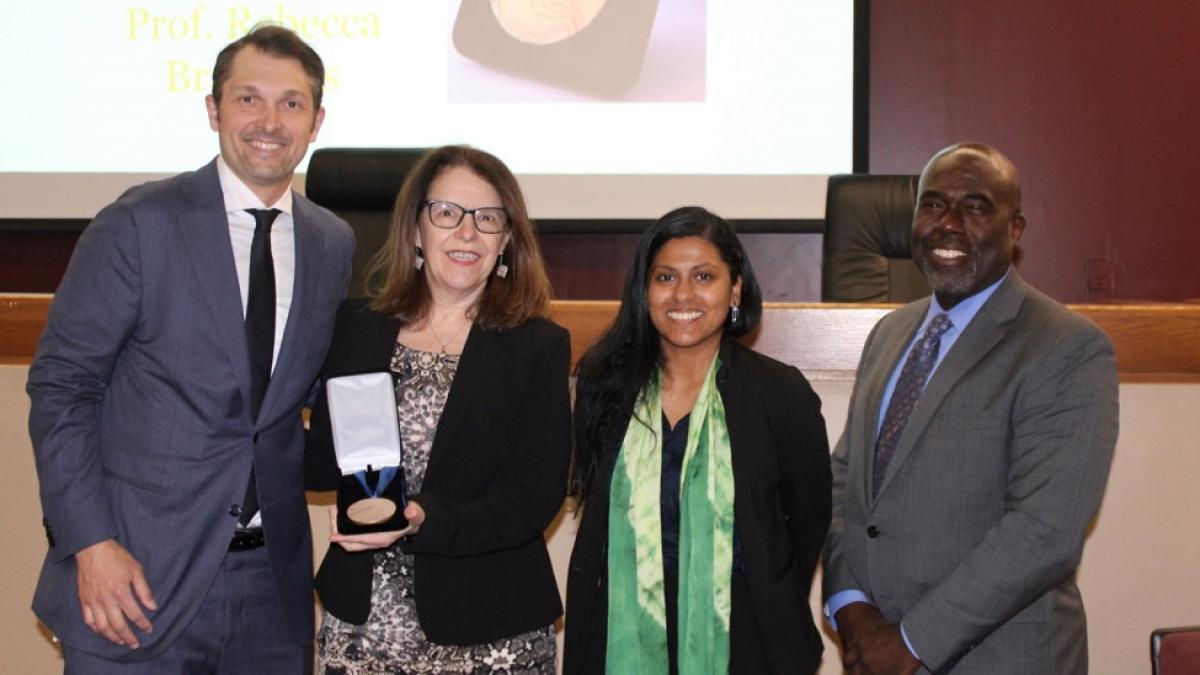
Professor Rebecca Bratspies delivered the Annual Lloyd K. Garrison Lecture on Environmental Law on Tuesday, April 16 on "Mapping Injustice: Race, Place, and Environment in New York City." The Lloyd K. Garrison Lecture on Environmental Law was established in memory of Lloyd K. Garrison in 1995. Professor Rebecca Bratspies currently serves as a Visiting Professor of Environmental Law and Haub Visiting Scholar at the Elisabeth Haub School of Law at Pace University. She is also a Professor at CUNY School of Law, where she is the founding director of the Center for Urban Environmental Reform. While at Haub Law, Professor Bratspies is teaching Administrative Law and a Health and the Environment seminar.
Dean Horace E. Anderson Jr. provided the audience with the background of the Annual Lloyd K. Garrison Lecture on Environmental Law and the importance of the lecture to the Haub Law community. Associate Director of Environmental Law Programs & Adjunct Professor at Haub Law, Achinthi Vithanage, introduced Professor Rebecca Bratspies. During her introduction, Professor Vithanage noted Professor Bratspies’ impressive background and the impact she has had on her personally and on the larger environmental law community. Professor Vithanage noted that Professor Bratspies is a well-known environmental justice scholar, a widely published and cited scholar, a human rights advocate, a comic book author, a dedicated educator, an engaged member of the legal profession and academy, a resident historian, a mentor for young academics, a compassionate colleague, and more. After the heartfelt introduction concluded, Gilbert and Sarah Kerlin Distinguished Professor of Environmental Law and Associate Dean of Environmental Law Programs and Strategic Initiatives Jason Czarnezki presented Professor Bratspies with the Garrison Award and Medal.
Professor Bratspies started her lecture by noting that her academic interest focuses on “infrastructure and how the way that we build our city impacts communities and in particular the way that we distribute the benefits and burdens among and between communities.” Professor Bratspies focused her lecture on Environmental Justice, which she describes as having at least two rough components: “fair treatment, a substantive outcome” and “meaningful involvement,” which can be described as a procedural component. She used these components throughout her lecture to discuss the “highly racialized inequality” that exists today, how we got here, and what we can do about it. Professor Bratspies spoke of the role that lawyers play, where “identifying problems as lawyers is only the start, our job is how to move forward and how to solve problems, not just to point them out.”
Professor Bratspies chronicled the history of New York, starting with the 1890’s, and the evolution of housing in New York from single-family to tenement style buildings and the progression of events and laws and agencies. Throughout her lecture, Professor Bratspies utilized the visual tools of maps to display the evolution of structural racism. As she detailed the evolution of New York and structural racism, Professor Bratspies came to the recent map showing New York City’s Environmental Justice Areas, which was produced with advisement by the Environmental Justice Advisory Board, which Professor Bratspies sits on. She noted the importance that this map will play in New York City making a change and dismantling the system to build a fairer one, which will be aided by the recently passed environmentally focused laws that are helping to create a better environmental future for all. She concluded her lecture discussing several current examples of ways that actual change is being moved forward and overburdened communities’ needs and desires are being met. One example includes the closing of Rikers Island and the proposition for Renewable Rikers. Professor Bratspies worked with environmental justice advocates and the Close Rikers Coalition to propose that when Rikers is closed that several things happen, including dedicating a portion of the Island to large scale solar energy, to building a modern wastewater treatment facility, to removing polluting infrastructure from historically overburdened communities, and importantly to ensure these changes happen with the participation and involvement by those most impacted by mass incarceration.
Professor Bratspies has written scores of law review articles which have been published in a variety of prestigious publications. Her most recent book Naming Gotham: The Villains, Rogues and Heroes Behind New York Place Names, won the New York Public Historians 2023 award for Excellence in Local History. Her co-authored textbook Environmental Justice: Law Policy and Regulation is used in schools across the country. Professor Bratspies is perhaps best known for The Environmental Justice Chronicles—her award winning environmental justice comic books Mayah’s Lot, Bina’s Plant, and Troop’s Run, made in collaboration with artist Charlie LaGreca-Velasco. EPA recognized this work with the 2023 Clean Air Act Award for Excellence in Education/Outreach.
Professor Bratspies is a member-scholar with the Center for Progressive Reform, a board member of the Environmental Law Collective, and a member of the NYC Bar Environmental Committee. ABA-SEER honored her work with its 2021 Commitment to Diversity and Justice Award. She was named the Center for International Sustainable Development Law’s 2022 International Legal Specialist for Human Rights Award, and her environmental justice advocacy has been awarded the PSC-CUNY “In It Together” Award, and the Eastern’ Queens Alliance’s Snowy Egret Award. In 1994-95, she was a Luce Scholar seconded to the Republic of China Environmental Protection Administration in Taipei, Taiwan. Before that, she served as a law clerk to the Honorable C. Arlen Beam on the Eighth Circuit Court of Appeals. Professor Bratspies holds a JD cum laude from the University of Pennsylvania, and a BA in Biology from Wesleyan University.
After the lecture, audience members had an opportunity to comment and ask questions and a reception immediately followed the Garrison Lecture.
Lloyd K. Garrison Lecture History
Over forty-five years ago, Lloyd K. Garrison and his associate, Albert K. Butzel, of Paul, Weiss, Rifkind, Wharton & Garrison, won the landmark decision to preserve Storm King Mountain on the Hudson River. This victory for the Scenic Hudson Preservation Conference did more than safeguard "an area of unique beauty and major historical importance" - it inaugurated what today we recognize as the field of environmental law.
Standing in court to protect nature, citizen suit legislation, the environmental impact statement process, and the balancing of economics with the preservation of scenic beauty and historic resources: these are all rooted in Scenic Hudson Preservation Conference v. Federal Power Commission, 354 F.2d 608 (2d Cir. 1965). The Lloyd K. Garrison Lecture celebrates the vision, public spirit and life of this attorney whose legal acumen led citizens in their successful advocacy of environmental quality at Storm King.
Lloyd K. Garrison passed away in 1991. For all his 93 years, Garrison devoted his brilliance and indefatigable energy to building a humane and caring society, respectful of the Rule of Law. Consistent with this dedication, Lloyd K. Garrison took up the citizens’ call to represent the Scenic Hudson Preservation Conference in its struggle to protect the Hudson River Gorge at Storm King Mountain. With characteristic enthusiasm he championed public participation rights for the community’s environmental interest, just as he did for civil rights and liberties. The Scenic Hudson victory is a living testament to Garrison's ever hopeful spirit.
The Lloyd K. Garrison Lecture on Environmental Law was established in his memory in 1995, four years after his death, and continues in his honor.
Press Release: Pace University Premiered ‘The Cooper’ Documentary at Jacob Burns Film Center
Pace University’s documentary film team – PaceDocs –premiered “The Cooper: Crafting the Soul of the Cask” on Thursday, May 2, 2024 at the Jacob Burns Film Center.
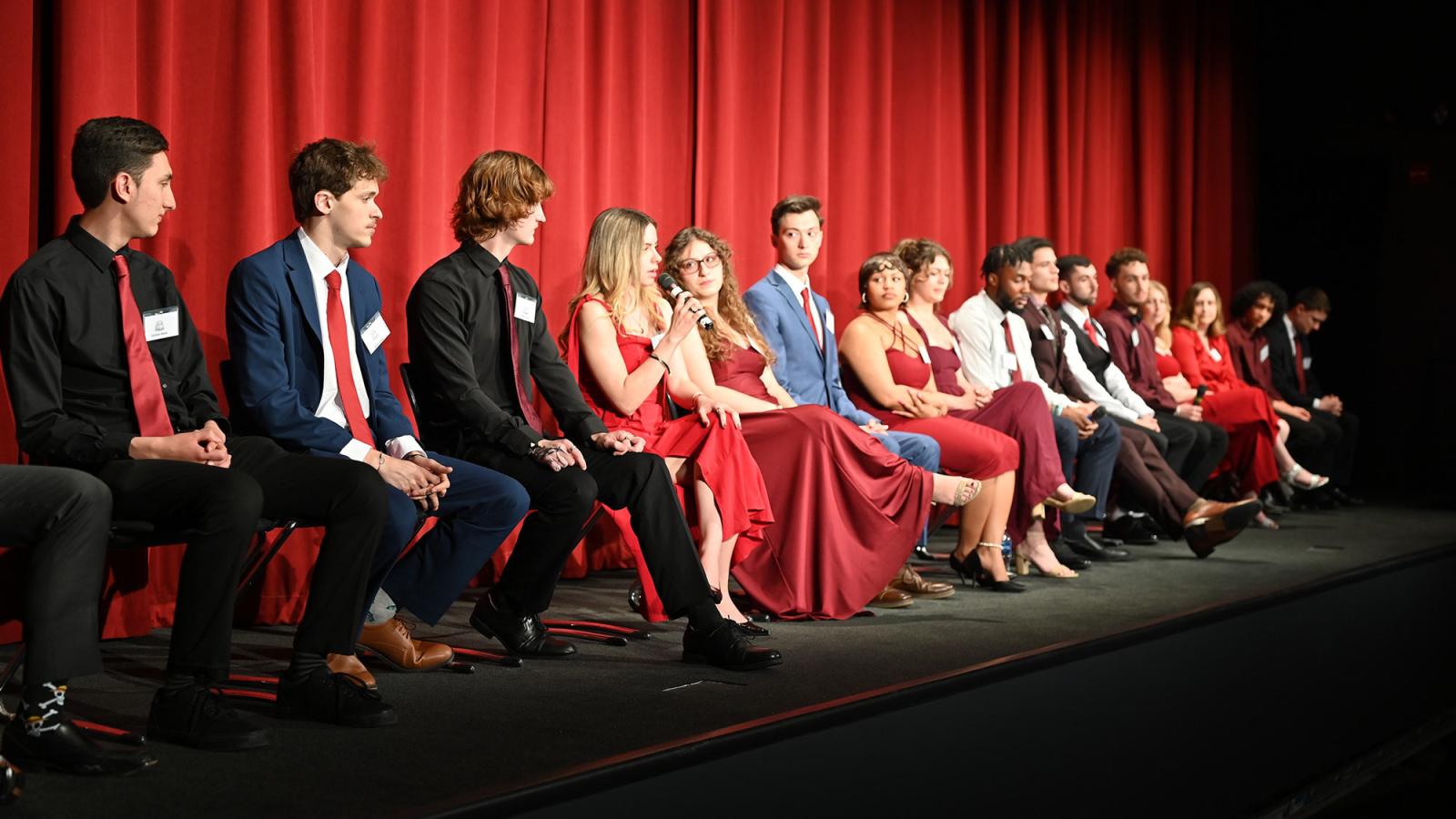
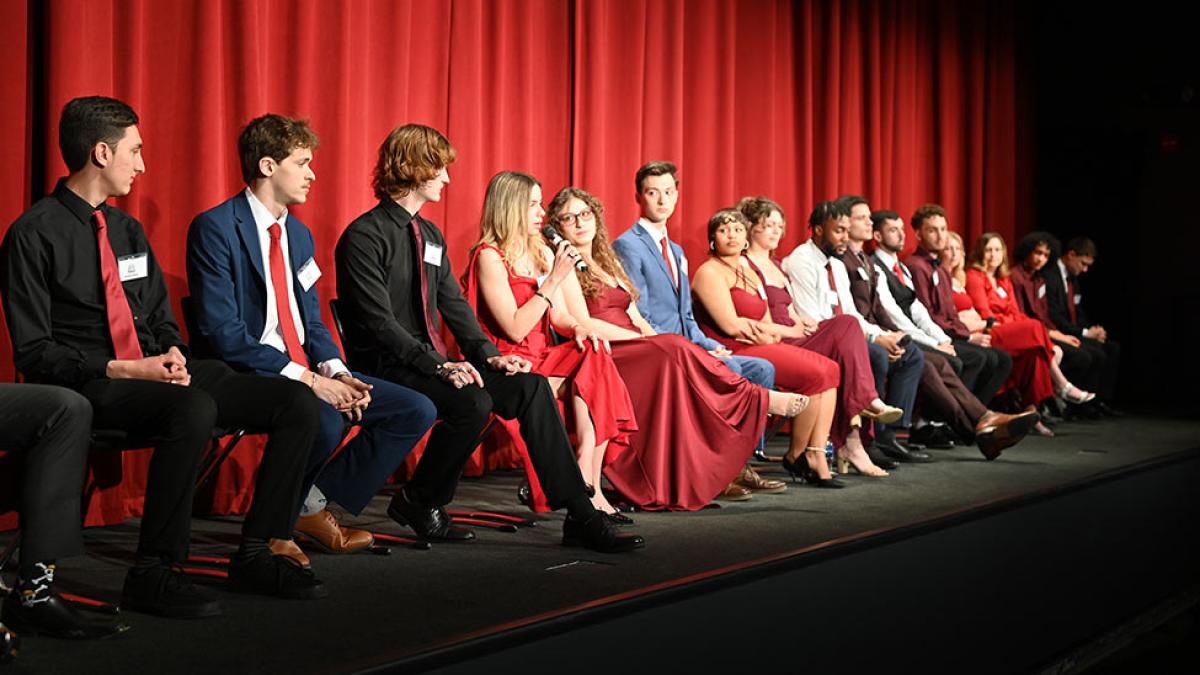
The PaceDocs Team focuses film on the craft of barrel making
For the first time, documentary premieres in English and Spanish
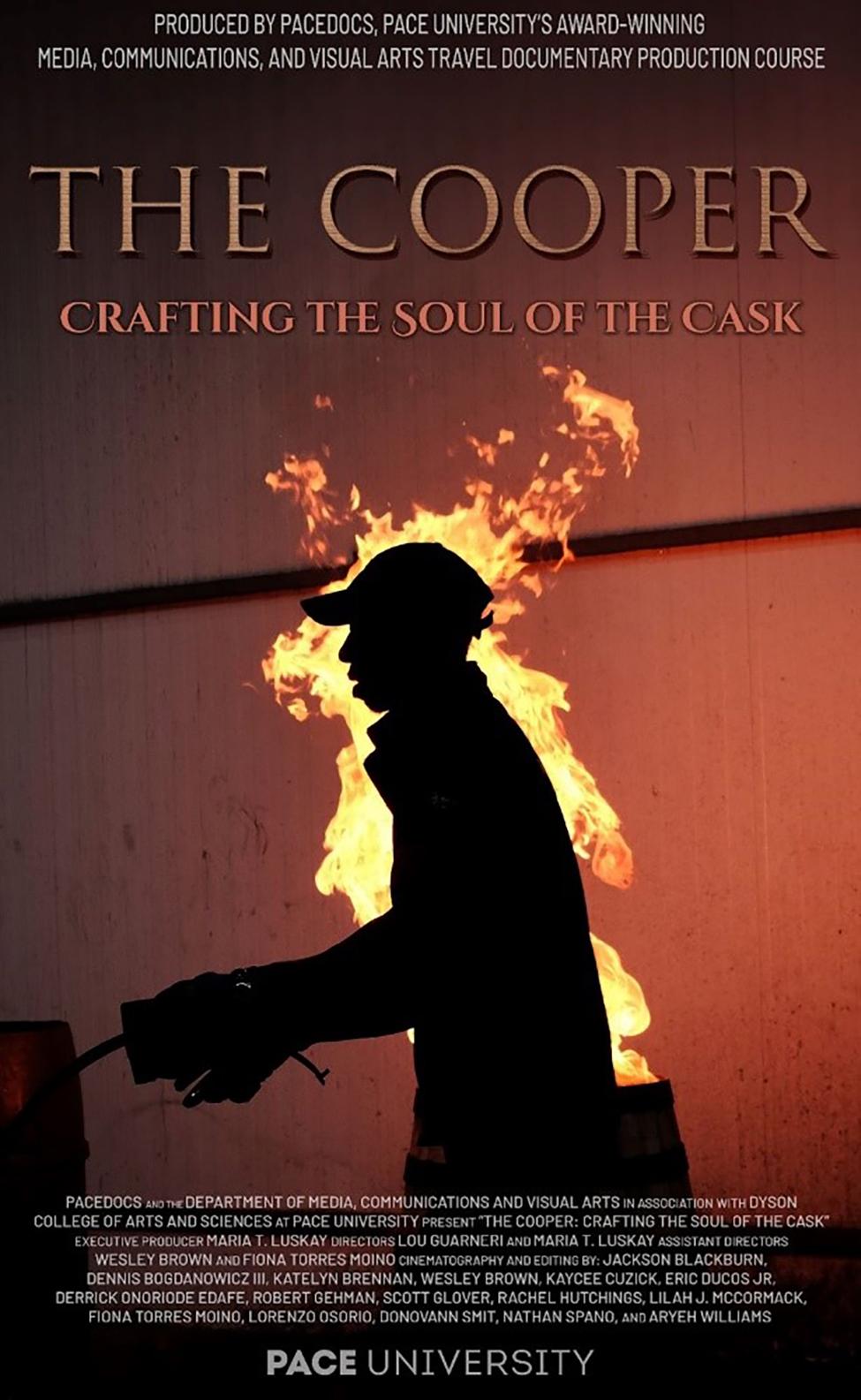
Pace University’s documentary film team – PaceDocs –premiered “The Cooper: Crafting the Soul of the Cask” on Thursday, May 2, 2024 at the Jacob Burns Film Center.
For the first time ever, PaceDocs will be premiering a documentary in both English and in Spanish. The English version premiered at the Jacob Burns Film Center while the Spanish version will debut in Montilla and Cordoba, Spain on May 13.
The documentary was produced by Dyson College of Arts and Sciences Professors Maria Luskay and Lou Guarneri, and Pace University’s documentary film team.
The PaceDocs team collaborated with José Buendía Picó, a well-known Spanish musician and composer, to provide the music to an audiovisual story. Pico has won 14 composition awards.
“The Cooper” is an exploration of the art of cask making, also known as cooperage. Its rich history that can be traced back to ancient civilizations, with evidence of wooden containers used for storing and transporting liquids found in archaeological sites dating as far back as 2690 BCE in Egypt. The type of cask and the type of wood used in winemaking can significantly influence the taste, aroma, and characteristics of wine in Spain, as in other winemaking regions around the world.
The documentary was filmed in the Andalusian region of Spain, specifically Montilla-Moriles over the course of several weeks.
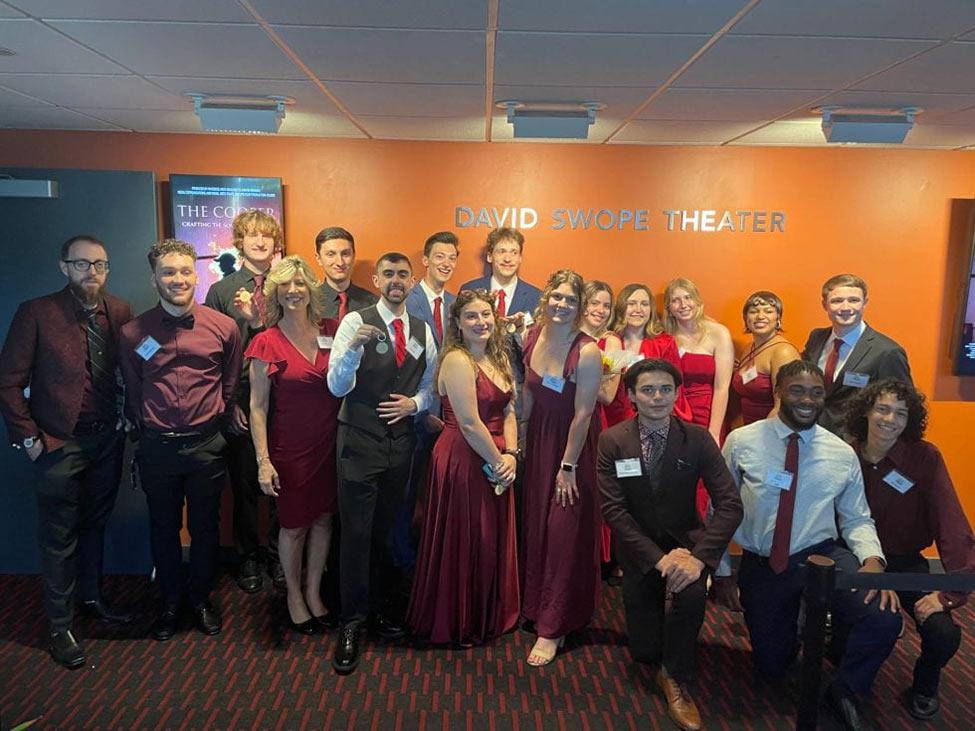
“The PaceDocs team, under the leadership of Professor Maria Luskay, has once again produced a professional, fascinating and timely film,” said Marvin Krislov, president of Pace University. “ ‘The Cooper’ is another great example of the hands-on experience that uniquely captures the tradition and rich history of cask making. I marvel at the consistent excellence and talent in this program and am impressed by this group of filmmakers.”
The documentary is the focus of the popular class, “Producing the Documentary”, which is part of the Dyson College of Arts and Sciences at Pace University’s highly regarded film program that requires students complete a full-length environmentally themed documentary within 14 weeks. During the process, students learn teamwork, problem-solving, research, and organization, along with technical skills such as lighting, sound, camera work, interviewing, and other real-life lessons necessary to complete a film.
“Sharing this immersive experience with our students is incredibly rewarding and educational for all that are involved,” said Professor Luskay, a faculty member with the department of media, communications, and visual arts. “In addition to filming on-location in Spain and learning about difficult cultures, our team was tasked with producing, filming, and editing a professional quality documentary on the tightest of timelines. The lessons and the memories will no doubt last a lifetime and serve them well in their professional pursuits.”
A blend of graduate and undergraduate students, they were moved by the experience of working on and producing a film of professional quality.
“I wore many hats on the documentary, but one of them was story producer,” said Lilah McCormack, a digital journalism major from Dexter, Maine. “I worked a lot in the editing room, making sure the editing was aligning with the story we wanted to tell. I was scheduling folks to be in the editing room and I did some graphic design with making the poster. I also made the trailer that debuted on Youtube.”
McCormack said there were challenges that had to be met as well. “The biggest challenge I faced was managing my time. It was a big undertaking, but I expected it. There was also the short time frame we had to edit and finalize the whole documentary. It was run and gun from the time we got back from Spain, but we did it.”
Nathan Spano, a digital cinema and filmmaking major from Delran, New Jersey, agreed there were challenges. “Post-production was our biggest challenge,” he said. “There was a time crunch and we had very specific deadlines. We had tech check and then notes to run through.”
“While we were filming, setting up interviews was hard because you had to be in and out and make sure audio quality was right and everything was set right with the cameras. It was a such a learning experience for me and I think it is a great opportunity for students in general.”
For Eric Ducos, a film and screen studies major from Woodside, Queens, the weather was a bit challenging. “It was raining the whole week and that is unusual for Montilla,” he said. “It is usually dry and hot and the sun is always out. We had to do a lot of adapting around those circumstances. We had to move a lot around and move interviews indoors.”
Fiona Torres Moino, a film and screen studies major from Buenos Aires, had a much-needed skill on set. “I am a native Spanish speaker and most of our subjects spoke only Spanish,” she said. “In the hotel and in post-production, I needed to do a lot of translation. One of the biggest challenges was the Spanish accent was very strong. Even though I am a native Spanish speaker, it took me a while to get used to the different dialect and words they use. It was a big challenge, but it worked.”
“The Cooper” continues a proud tradition of producing high quality, meaningful, and award-winning films. In recent years, Pace filmmakers have produced documentaries around the globe focusing on a number of topics, including the farm-to-table food movement in France (2023); how oysters depend on the ebb and flow of tides (2022); the importance of bees as pollinators in our food supply (2021); the impact of earthquakes in Hawaii (2019); the endurance of the people of Puerto Rico in the aftermath of Hurricane Maria (2018); Cuba at a cultural crossroads (2016); reviving Curacao’s coral reefs (2015); as well as many other poignant films.
“Dyson College’s student filmmakers have produced another moving documentary that delves into the important and fascinating history of cask making,” said Tresmaine R. Grimes, dean, Dyson College of Arts and Sciences and School of Education, and interim dean for the Sands College of Performing Arts. “The students learn and perfect their craft while educating us all. I am so moved by the talents of this team and the compelling film they have made. Congratulations to them and Professors Luskay and Guarneri for another impressive PaceDocs production.”
About Pace University
Since 1906, Pace University has been transforming the lives of its diverse students—academically, professionally, and socioeconomically. With campuses in New York City and Westchester County, Pace offers bachelor, master, and doctoral degree programs to 13,600 students in its College of Health Professions, Dyson College of Arts and Sciences, Elisabeth Haub School of Law, Lubin School of Business, Sands College of Performing Arts, School of Education, and Seidenberg School of Computer Science and Information Systems.
About Dyson College of Arts and Sciences
Pace University’s liberal arts college, Dyson College, offers more than 50 programs, spanning the arts and humanities, natural sciences, social sciences, and pre-professional programs (including pre-medicine, pre-veterinary, and pre-law), as well as many courses that fulfill core curriculum requirements. The College offers access to numerous opportunities for internships, cooperative education and other hands-on learning experiences that complement in-class learning in preparing graduates for career and graduate/professional education choices.
Renewing Oceans: The Bio-Brick Revolution
Seidenberg grad student Shubham Harishchandra Madhavi is making waves in the fight against climate change. His recent victory in the Project Planet USA contest, securing a $15,000 grant, has propelled his innovative concept into the spotlight.
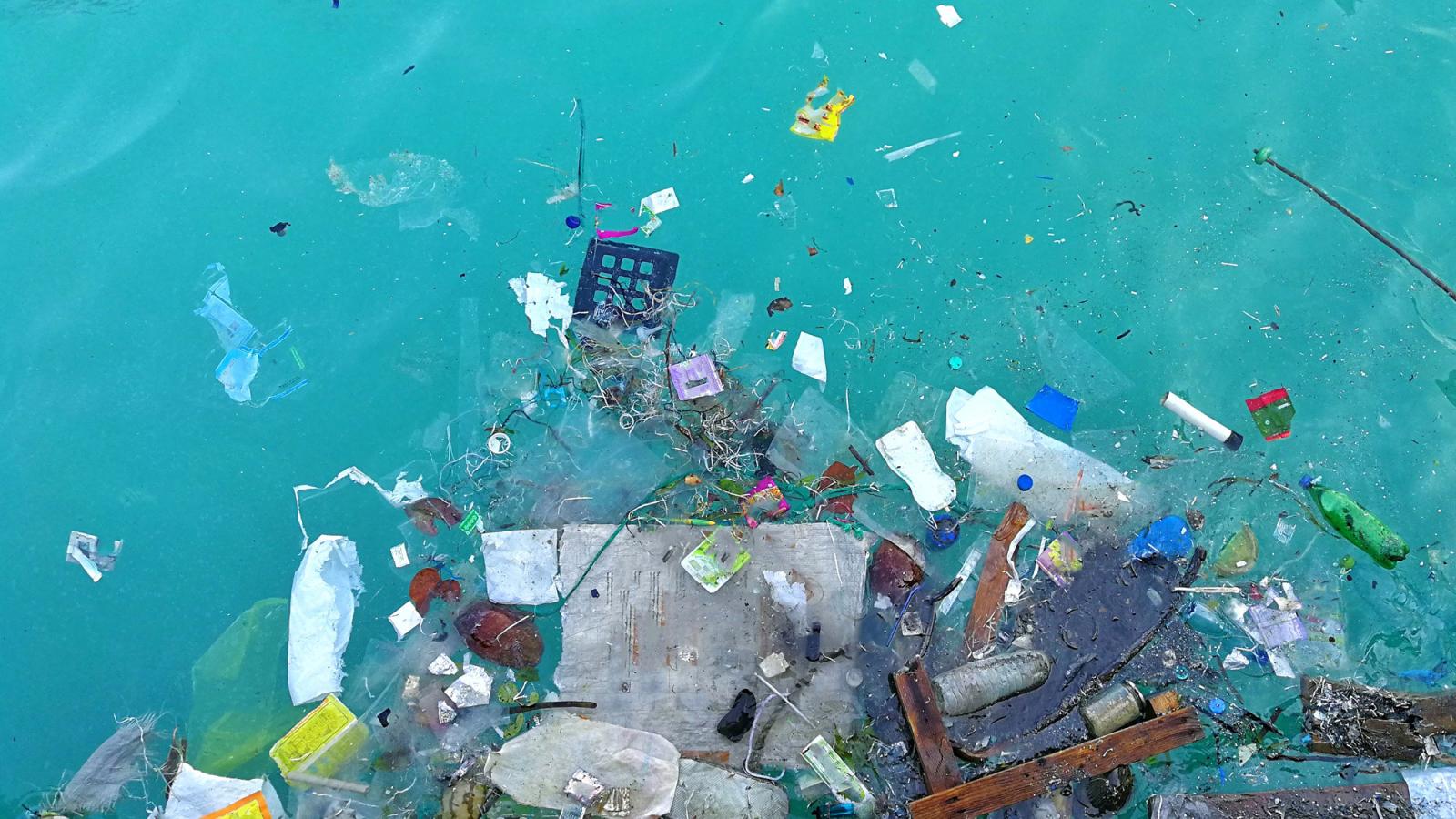
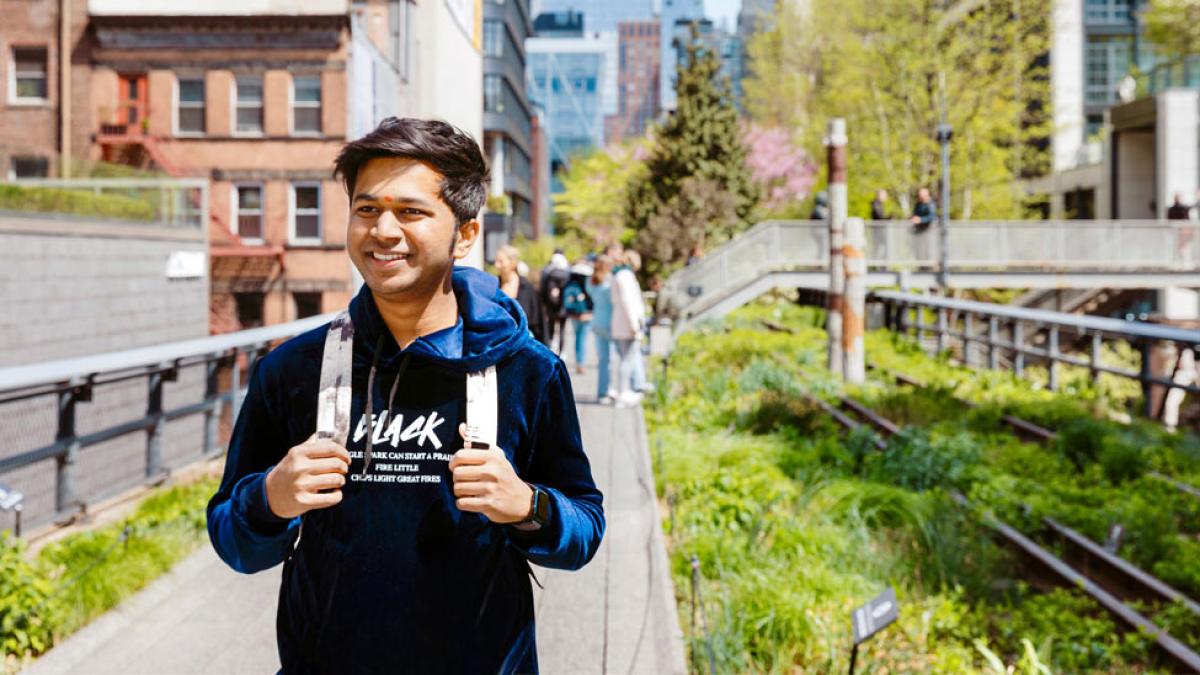
In the heart of New York City, amid the bustling streets and towering skyscrapers, Shubham Harishchandra Madhavi ‘24, a graduate student at Pace’s Seidenberg School, is making waves in the fight against climate change. His recent victory in the Project Planet USA contest, securing a $15,000 grant, has propelled his innovative concept into the spotlight, igniting hope for a greener, more sustainable future.
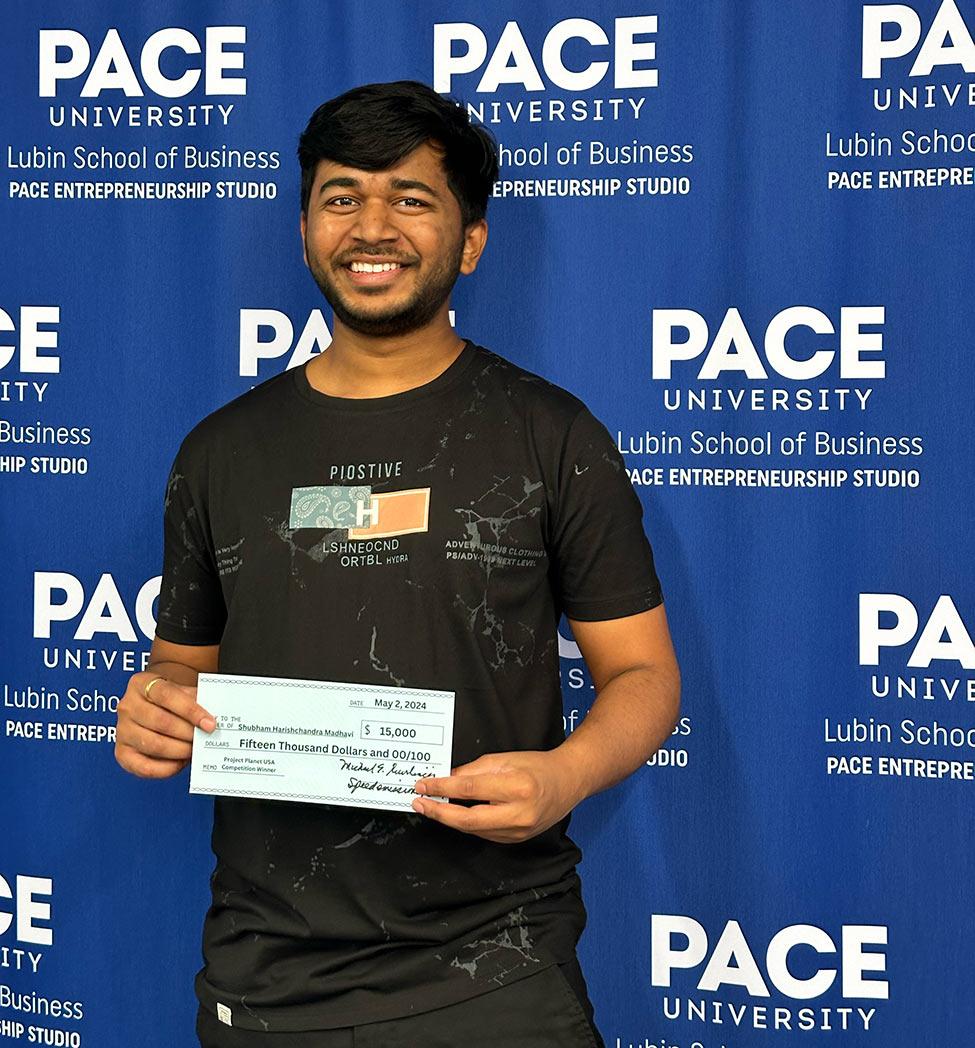
Through Project Planet USA, an initiative spearheaded by Speedemissions and The Front Yard at Pace University, students and faculty were encouraged to submit their concepts, innovative ideas, or solutions aimed at addressing climate change for a chance to win a cash grant in the amount of $15,000, plus professional mentoring, public relations, and network connections.
So, what does it take to win?
Shubham's winning concept is as ingenious as it is ambitious: bio-bricks harvested from plastic that has made its way into the ocean. These special bio-bricks would be designed to restore coral reefs while combating the looming threat of climate change. “My winning concept revolves around the creation of bio-bricks harvested from ocean plastic, which have the remarkable ability to convert CO2 into coral-restoring nutrients," Shubham explains. “This innovative approach not only addresses the urgent need to tackle plastic pollution in our oceans but also contributes to the restoration of coral reefs, which are vital ecosystems threatened by climate change.”
With the support of the grant and accompanying mentoring, Shubham envisions tangible impacts rippling across oceans and coastlines worldwide. "By removing ocean plastic and converting it into bio-bricks, we directly mitigate the harmful effects of plastic pollution on marine life and ecosystems," he says. But his vision extends far beyond mere mitigation. These bio-bricks, infused with the power to convert CO2 into coral-restoring nutrients, hold the potential to reshape entire ecosystems, bolstering biodiversity and fortifying coastal communities against the ravages of climate change.
“This innovative approach not only addresses the urgent need to tackle plastic pollution in our oceans but also contributes to the restoration of coral reefs, which are vital ecosystems threatened by climate change.”
The grant's resources offer Shubham a network of support—including mentorship—in his quest to bring his proposed idea into fruition. Professional mentoring promises guidance in navigating the turbulent waters of project management, while public relations support amplifies his message, rallying support from partners and funders alike. Network connections pave the way for collaborations, opening doors to a world of opportunities previously beyond reach. "Leveraging the grant's resources is crucial for enhancing the impact and reach of my project," Shubham asserts.
But Shubham's ambitions extend far beyond the confines of the grant period. His long-term goals are as vast as the ocean itself, encompassing the scaling up of bio-brick production, the expansion of the project to distant shores, and the integration of his innovation into existing reef restoration efforts. "Establishing partnerships with local communities, businesses, and governments" is key to sustaining impact, he emphasizes.
As Shubham charts a course towards a greener tomorrow, his journey serves as a beacon of hope in a world besieged by environmental crises. Through unwavering determination and boundless innovation, he proves that even the mightiest challenges can be overcome, one bio-brick at a time.
